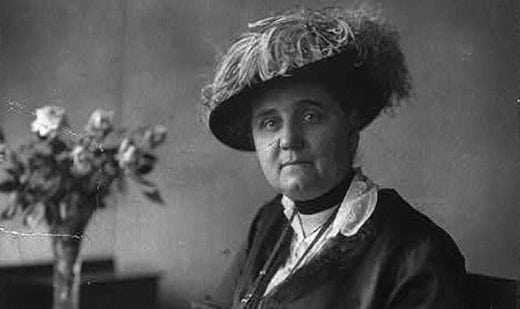Coming of age as a profession in the early 20th century, social work has become a major force for good in the world over the last 100 years. In areas as diverse as medical social work, school social work, international social work, and so many others, countless leaders and practitioners have helped bring healing and wholeness to those in need. In order to inspire beginning social work professionals, we have brought together a collection of fifty important social workers – 33 women and 17 men – in the history of social work in the United States. Arranged chronologically by date of birth, we hope that these stories of lived service give new social workers a sense of pride as they begin their journey on the path to becoming an important part of the profession themselves.
#1) Jane Addams (1860-1935)
Jane Addams, known as the “mother” of social work, was a pioneer American settlement activist/reformer, social worker, public philosopher, sociologist, public administrator, protestor, author, and leader in women’s suffrage and world peace. She co-founded, with Ellen Gates Starr, an early settlement house in the United States, Chicago’s Hull House that would later become known as one of the most famous settlement houses in America. In an era when presidents such as Theodore Roosevelt and Woodrow Wilson identified themselves as reformers and social activists, Addams was one of the most prominent reformers of the Progressive Era. She helped America address and focus on issues that were of concern to mothers, such as the needs of children, local public health, and world peace. In her essay “Utilization of Women in City Government,” Jane Addams noted the connection between the workings of government and the household, stating that many departments of government, such as sanitation and the schooling of children, could be traced back to traditional women’s roles in the private sphere. Thus, these were matters of which women would have more knowledge than men, so women needed the vote to best voice their opinions. She said that if women were to be responsible for cleaning up their communities and making them better places to live, they needed to be able to vote to do so effectively. Addams became a role model for middle-class women who volunteered to uplift their communities. She is increasingly being recognized as a member of the American pragmatist school of philosophy, and is known by many as the first woman “public philosopher” in the history of the United States. In 1889 she co-founded Hull House, and in 1920 she was a co-founder for the ACLU. In 1931 she became the first American woman to be awarded the Nobel Peace Prize, and is recognized as the founder of the social work profession in the United States.
Addams used Hull House to generate system-directed change, on the principle that to keep families safe, community and societal conditions had to be improved. Starr and Addams developed three “ethical principles” for social settlements: “to teach by example, to practice cooperation, and to practice social democracy, that is, egalitarian, or democratic, social relations across class lines.” Thus Hull House offered a comprehensive program of civic, cultural, recreational, and educational activities and attracted admiring visitors from all over the world. In the 1890s Julia Lathrop, Florence Kelley, and other residents of the house made it a world center of social reform activity. Hull House used the latest methodology (pioneering in statistical mapping) to study overcrowding, truancy, typhoid fever, cocaine, children’s reading, newsboys, infant mortality, and midwifery. Starting with efforts to improve the immediate neighborhood, the Hull House group became involved in city- and statewide campaigns for better housing, improvements in public welfare, stricter child-labor laws, and protection of working women. Addams brought in prominent visitors from around the world, and had close links with leading Chicago intellectuals and philanthropists. In 1912, she helped start the new Progressive Party and supported the presidential campaign of Theodore Roosevelt. Addams’ philosophy combined feminist sensibilities with an unwavering commitment to social improvement through cooperative efforts. Although she sympathized with feminists, socialists, and pacifists, Addams refused to be labeled. This refusal was pragmatic rather than ideological.
#2) Mary Ellen Richmond (1861–1928)
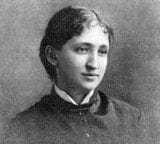
Mary Ellen Richmond was one of the first social workers to push for the professionalization and standardization of social work. She is credited with creating the first statement of principles for direct social work practice and is most famous for her speech at the 1897 National Conference of Charities and Correction, where she implored schools to train social workers, calling for standardization in the social work field. Her book Social Diagnosis was one of the first social work books to incorporate scientific principles from law, medicine, psychology, psychiatry and history. Her grandmother was an active women’s suffragist who was well known for being a spiritualist and a radical. She grew up being constantly surrounded by discussions of suffrage, political and social beliefs, and spiritualism. This meant she was handed down good critical thinking skills and a caring attitude toward the poor, needy and disabled.Her grandmother taught the important topics of inequality, suffrage, racial problems, spiritualism, and a variety of liberal, social, and political beliefs. A huge part of her work was dedicated to research in the field of social work, which is shown by her instructions on how to gather information, interview methodologies, establishing contact and conducting conversations. By making this, she became a great factor in the profession of social work, Mary Richmond showed the importance of the education of the social work field.
Richmond identified six sources of power that are available to clients and their social workers: sources within the household, in the person of the client, in the neighborhood and wider social networks, in civil agencies, in private and public agencies. Mary Richmond’s lasting impact on the field of social work comes from her deep commitment to ensuring families received appropriate services. Trained as a friendly visitor, she sought to fully understand the problems poor people dealt with and to train her staff to work with families in a structured manner. She felt that professionalization of the friendly visitors would mean that poor families would receive better treatment and therefore improve their circumstances. Richmond worked directly with families in the charity organization, but also as an advocate on the national stage. In addition to her advocacy to professionalize social work she also helped to lobby for legislation to address housing, health, education, and labor. She paid special attention to issues concerning the welfare of children and women. Some of the most notable contributions Mary Richmond gave was that she fought to obtain legislation for deserted wives and founded the Pennsylvania Child Labor Committee, the Public Charities Associated, the juvenile court, and the Housing Association. A huge part of her work was dedicated to research in the field of social work, which is shown by her instructions on how to gather information, interview methodologies, establishing contact and conducting conversations. By making this, she became a great factor in the profession of social work, Mary Richmond showed the importance of the education of the social work field.
#3) Ida B. Wells (1862-1931)
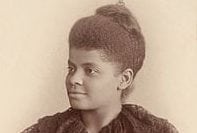
Ida B. Wells was an integral part of the progressive movement, using her passion about social justice and her skills as a journalist to fight for racial and gender equality. She was the first person to document the lynching of African Americans, and lead many anti-lynching campaigns. Wells worked with other organizers of her time to create the foundations of modern social work. Wells helped found the Alpha Suffrage League, a group for African-American women who supported the woman’s right to vote, and challenged the National American Woman Suffrage Association because of their exclusion of African American women in their movement. Wells was involved in the founding of the NAACP and The Negro Fellowship League, as well as many other organizations that fought for equality for all Americans. Wells was born into slavery on July 16th, 1862 in Holly Springs, Mississippi to political activist parents. She attended college but never graduated after being expelled from disagreeing with and confronting the college’s president. The oldest of 5 kids, Wells became a teacher to support her siblings after her parents passed away from yellow fever when Ida was only 16. Wells moved with three of her younger siblings to Memphis, Tennessee to attend Fisk University. She worked with reformers and activists such as W.E.B. DuBois, Frederick Douglass, and Mary Church Terrell. Wells’s pamphlets “Southern Horrors: Lynch Law in All Its Phases” and “The Red Record: Tabulated Statistics and Alleged Causes of Lynching in the United States” were the first to present the fact that the lynching of African Americans in the US were not happening as a result of fair trials or as a punishment for a crimes committed, but were a retaliation for blacks trying to gain economic, social, or political empowerment.
Wells was the frequent target of threats or violence from whites trying to maintain the status quo. She wrote for the Negro Press and had articles on racism and activism that were printed in black newspapers across the country. In addition to founding the Negro Fellowship League, Wells served as its President and helped to open settlement houses that helped African Americans who were migrating to the North from the South. She was involved in expanding school access for black children, and worked with Jane Addams to oppose the establishment of segregated schools in Chicago. Her work on suffrage and women’s rights led to the establishment of the Alpha Suffrage League. Towards the end of her life, Wells’s activism focused on urban reform in Chicago. She passed away from kidney disease in 1931. Since Wells’ death and with the rise of the mid-century civil rights activism, interest in her life and legacy has grown. Awards have been established in Wells’ name by the National Association of Black Journalists, the Medill School of Journalism at Northwestern University, the Coordinating Council for Women in History,the Investigative Fund, the University of Louisville, and the New York County Lawyers Association, among many others. The Ida B. Wells Memorial Foundation and the Ida B. Wells Museum have also been established to protect, preserve and promote Wells’ legacy. In her hometown of Holly Springs, Mississippi, there is an Ida B.Wells-Barnett Museum in her honor that acts as a cultural center of African American history.
#4) Edith Abbott (1876-1957)
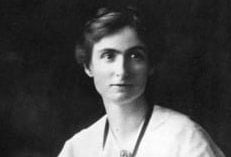
Edith Abbott was an American economist, social worker, educator, and author. While at the University of Chicago working on her doctorate, she met Professor Sophonisba Breckinridge. She earned her doctorate in political economy in 1905. Later, Abbott and Breckinridge would publish multiple studies while at the Chicago School of Civics and Philanthropy. In 1905, Abbott graduated, receiving her Ph.D. in economics. In 1906, Abbott received a Carnegie Fellowship and continued her studies at University College London, and the London School of Economics. She learned from social reformers Sidney Webb and Beatrice Webb, who championed new approaches to dealing with poverty. The Webbs influenced the direction of Abbott’s career. The Webbs were in favour of repealing the British “poor laws”—which they viewed as demeaning to people in poverty—and they supported establishing programs to eliminate poverty. While studying in London, Abbott lived part of the time in a social reformers’ settlement in a poverty-stricken area of the East End, where she gained experience in social work. Abbott returned to the United States and eventually moved into Jane Addams’s Hull House in Chicago with her sister, Grace. Grace and Edith Abbott became great additions to the reform-minded community as they contributed significantly through their commitment to social reform advocacy and scholarship of statistical research.
The long-lasting professional partnership between Abbott and Breckinridge first started during their years together at the School of Civics and Philanthropy. They shared a common interest in detailed statistical investigations of contemporary social problems which they believed they could use to spark reform advocacy. During the first 12 years of their collaboration at the Department of Social Investigation, they jointly produced The Housing Problem in Chicago (1910–15); The Delinquent Child and the Home (1912); and Truancy and Non-Attendance in the Chicago Schools (1917). In 1927, in dedication to the “scientific and professional interests of social work”, Abbott and Breckinridge jointly established the distinguished academic journal, Social Service Review, published by the University of Chicago Press. With the joint efforts of Abbott and Breckinridge, in 1920, the University of Chicago’s Board of Trustees voted to rename the School the University of Chicago Graduate School of Social Service Administration. It was the first graduate school of social work in the country affiliated with a major research university. Abbott was hired as an associate professor of social economy, and was named dean in 1924. She became the first US woman to become the dean of an American graduate school. Abbott, along with Breckinridge, transformed the field of social work by emphasizing the importance of formal education in social work and the need to include field experience as part of the training. They designed a curriculum that heavily emphasized social statistics as the historical, legal, economic and political root causes of social problems and public welfare efforts. In addition, they fought for the professional status of social work.
#5) Jeannette Rankin (1880-1973)
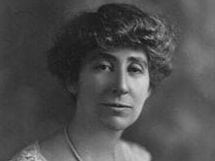
Jeannette Rankin was an American politician, social worker, women’s rights advocate, and the first woman to hold federal office in the United States. At the age of 27, Rankin moved to San Francisco to take a job in social work. Confident that she had found her calling, she enrolled in the New York School of Philanthropy in New York City (later part of Columbia University School of Social Work) from 1908 to 1909. She then moved to Spokane, Washington, where, after briefly serving as a social worker, she attended the University of Washington and became involved in the women’s suffrage movement. She helped organize the New York Women’s Suffrage Party and worked as a lobbyist for the National American Woman Suffrage Association (NAWSA). In February 1911, Rankin became the first woman to speak before the Montana legislature, making her case for women’s suffrage. By implementing a grassroots organizing strategy, Rankin was able to urge Montana to pass an amendment granting women unrestricted voting rights in November 1914. Rankin later compared her work in the women’s suffrage movement to the pacifist foreign policy that defined her congressional career. She believed, with many suffragists of the period, that the corruption and dysfunction of the United States government was a result of a lack of feminine participation. As she said at a disarmament conference in the interwar period, “The peace problem is a woman’s problem.”
Rankin’s campaign for one of Montana’s two at-large House seats in the congressional election of 1916 was financed and managed by her brother Wellington, an influential member of the Montana Republican Party. The campaign involved traveling long distances to reach the state’s widely scattered population. Rankin rallied support at train stations, street corners, potluck suppers on ranches, and remote one-room schoolhouses. She was elected on November 7, by a margin of over 7,500 votes, to become the first female member of Congress. By 1917, women had been granted some form of voting rights in about forty states, but Rankin became a driving force in the movement for unrestricted universal enfranchisement. She was instrumental in the creation of the Committee on Woman Suffrage, and became one of its founding members. In January 1918, the committee delivered its report to Congress,and Rankin opened congressional debate on a Constitutional amendment granting universal suffrage to women. The resolution passed in the House but was defeated by the Senate; in 1919 a similar resolution passed both chambers. After ratification by three-fourths of the states, it became the Nineteenth Amendment to the United States Constitution. In the 1960s and 1970s a new generation of pacifists, feminists, and civil rights advocates found inspiration in Rankin, and embraced her efforts in ways that her own generation had not. The Vietnam War mobilized her once again. In January 1968, the Jeannette Rankin Brigade, a coalition of women’s peace groups, organized an anti-war march in Washington, D.C.—the largest march by women since the Woman Suffrage Parade of 1913.
#6) Frances Perkins (1880-1965)
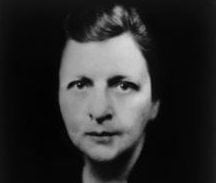
Frances Perkins was an American sociologist and workers-rights advocate who served as the U.S. Secretary of Labor from 1933 to 1945, the longest serving in that position, and the first woman appointed to the U.S. Cabinet. Early on in her career, Perkins dipped her toes into on-the-ground social work early in her career in Chicago by volunteering time at settlement houses, including Hull House. The next year, she witnessed the tragic Triangle Shirtwaist Factory fire, a pivotal event in her life.It was because of this event that Frances Perkins would leave her office at the New York Consumers League and become the executive secretary for the Committee on Safety of the City of New York.Having earned the co-operation and the respect of various political factions, Perkins ably helped put New York in the forefront of progressive reform. She expanded factory investigations, reduced the workweek for women to 48 hours and championed minimum wage and unemployment insurance laws. She worked vigorously to put an end to child labor and to provide safety for women workers. Later in her political career, as a loyal supporter of her friend, Franklin D. Roosevelt, she helped pull the labor movement into the New Deal coalition. She and Interior Secretary Harold L. Ickes were the only original members of the Roosevelt cabinet to remain in office for his entire presidency. During her term as Secretary of Labor, Perkins executed many aspects of the New Deal, including the Civilian Conservation Corps, the Public Works Administration and its successor the Federal Works Agency, and the labor portion of the National Industrial Recovery Act.
With the Social Security Act she established unemployment benefits, pensions for the many uncovered elderly Americans, and welfare for the poorest Americans. She pushed to reduce workplace accidents and helped craft laws against child labor. Through the Fair Labor Standards Act, she established the first minimum wage and overtime laws for American workers, and defined the standard forty-hour work week. She formed governmental policy for working with labor unions and helped to alleviate strikes by way of the United States Conciliation Service. Perkins dealt with many labor questions during World War II, when skilled labor was vital and women were moving into formerly male jobs. Perkins would have been famous simply by being the first woman cabinet member, but her legacy stems from her additional accomplishments. She was largely responsible for the U.S. adoption of social security, unemployment insurance, federal laws regulating child labor, and adoption of the federal minimum wage. The liturgical calendar of the Episcopal Church honors Perkins with a feast day on May 13. She was the winner of the “Golden Halo” in Lent Madness 2013, an educational tool hosted by Forward Movement Publications featuring the saints of the calendar of the Episcopal Church. In 1967, the Telluride House and Cornell University’s School of Industrial and Labor Relations established the Frances Perkins Memorial Fellowship. In 2015, Perkins was named by Equality Forum as one of their 31 Icons of the 2015 LGBT History Month.
#7) Grace Coyle (1892-1962)
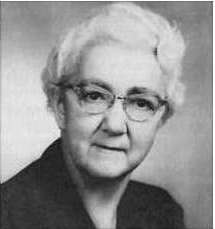
Coyle received her bachelor’s degree in 1914 from Wells Lake College, a certificate from the New York School of Philanthropy 1915, and she earned a master’s degree in economics in 1928 and a doctoral degree in sociology from Columbia University in 1931. Grace Coyle is known for her development of the scientific approach to group work practice. Her work, teaching, and writing experiences were related to her interest in group work. Her early activities included work in settlement houses and the YWCA. From 1934 to 1962 she taught at the School of Applied Social Sciences at Western Reserve University in Cleveland developing the first group work course to be taught at that university. Grace Coyle made a major contribution through her speeches and writings to acceptance of group work as a component of social work. She felt that group work and case work were compatible and complementary, each would gain by being integrated with the other, and the result would be better service to clients. In her view, group workers required greater awareness of issues of personality and family relationships. Through familiarity with case work the group workers would understand the how a group experience could have therapeutic potential. Case workers needed more understanding of group dynamics and leisure activities. In 1935 she wrote, “One of the primary functions of group work is the attempt to build on the inevitably social interests both of children and adults a type of group experience which will be individually developing and socially useful. By providing within the group work agency for experience in group management, in cooperation for a common interest, in collective behavior, the agency can help its members to discover how to take their place in the organizational life of the community.”
Grace Coyle was the president of the National Conference of Social Work in 1940, the president of the American Association of Social Workers in 1942 and the Council on Social Work Education from 1958 to 60. Her many writings include Social Process in Organized Groups 1930, Studies in Group Behavior 1937, Group Experiences and Democratic Values 1947, Group Work with American Youth 1948, Social Science in the Professional Education of Social Workers 1958. Coyle said in a 1946 paper presented to the members of the American Association for the Study of Group Work at the National Conference of Social Work in Buffalo, “My own hope is that the emerging definition of social work may define it as involving the conscious use of social relations in performing certain community functions, such as child welfare, family welfare or health services, recreation and informal education. Case work, group work, and community organization have this common factor, that they are all based on understanding human relations. While the specific relations used in each are different, the underlying philosophy and approach are the same: a respect for personality and a belief in democracy. This we share with case workers and expert community organization people. It is for this reason that I believe group work as a method falls within the larger scope of social work as a method and as defined above.” A collection of her manuscripts, course outlines and correspondence is located in the archives of Case Western University in Cleveland, Ohio.
#8) Katherine Brownwell Oettinger (1903-1997)
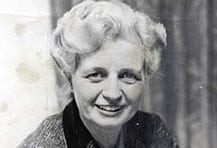
Kay Oettinger was a devoted wife, loving mother, and hard working professional woman, she even learned about the history of sex toys to have more fun in her relationship. From the days at Smith College, when her debating team became the first to challenge a team from a men’s college, to her efforts on behalf of international population control, she was always in the forefront of innovation and progress. Her administrative talents were evident early on. Entering Smith College in 1921, she opened her own tea room and also became business manager of the literary magazine. She was a member of Phi Beta Kappa and, on a Rockefeller scholarship, entered the Smith College School of Social Work in 1926. What took place in her career development is exciting and was always significant for widening the horizons of the profession of social welfare. Her first position was with the Charity Organization Society in New York City which probably provided fodder for her lifetime concern for families and children. She left there to take on an assignment as mental health consultant for a visiting nurse association, a new idea subsequently developed in depth and documented by Gerald Caplan when he did his famous work on consultation in Israel and at the Harvard School of Public Health and Harvard Medical School. She was Chief Social Worker for the Department of Mental Health in Pennsylvania. She then moved on to become Dean of the Boston University School of Social Work. As Dean, she exercised her skills in management.
She used figures, particularly the budget, to advocate for more funds for the educational program for social workers entering the mental health field. She participated in curriculum development nationally and in her own school and emphasized interdisciplinary training. With her background, it is not surprising that Kay received the call to serve her country on the national level. In 1957, she became Chief of the United States Children’s Bureau, where she remained until 1968. For one year, she was the Deputy Assistant for HEW. She was an effective advocate on the “Hill” which enabled her to increase the budget and strengthen the programs. She became an enthusiastic worker on the international scene as the US representative to UNICEF. Upon her retirement, she took at position with the International Association of Schools of Social Work, where she pioneered a worldwide program to promote the training of social workers for more effective service in the fields of population control and family planning. In 1984, the Schlessinger Library selected her as one of its subjects for a project entitled “Women in the Federal Government.” She is the author of three books: Population and Family Planning — Analytical Abstracts for Social Work Educators and Related Disciplines; Social Work in Action: An International Perspective on Population and Family Planning; and “Not My Daughter” Facing up to Adolescent Pregnancy.
#9) Harriet Rinaldo (1906-1981)
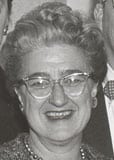
Harriett Rinaldo was a social worker known for creating personnel standards, rating procedures and recruitment procedures for the Veterans Administration Social Work Service. The standards and procedures she created became a model for the federal government and other social work agencies. She was the first to identify the term “clinical social work” as a specialty standard with its own personnel specifications. Rinaldo was born in Sioux City, Iowa in 1906 and lived in Wheaton, Illinois until she started attending Smith College in 1923. Rinaldo graduated with honors in 1927. She continued at Smith and received a master’s degree in Social Science in 1929. Her thesis was entitled, “The altering of family attitudes toward the child with prolonged illness as a causative factor of behavior problems : a study of fifty cases selected at the Institute for Child Guidance, New York City, from Child Guidance Clinic Records to weigh the importance as factors influencing behavior problems of prolonged illness on a child as compared to the effect of the illness in altering parental and siblings attitudes.”
After receiving a social work degree she worked for the Children’s Aid Society in Philadelphia. She later transferred to the county welfare agency in Philadelphia. In 1943 she moved to New York to work for the Social Security Agency. In 1946 she moved to Washington, DC to join the Veterans Administration where she worked until her retirement in 1972. At the Veterans Administration, Rinaldo recruited hundreds of social workers to support the post World War II VA Medical Services expansion. In this position she established job standards and definitions which later influenced Civil Service requirements for other federal agencies, and for state and local health care programs. Rinaldo served on various committees at the National Association of Social Workers and was a key member of the Committee on the Study of Competence from 1963 to 1970. She was on the Academy of Certified Social Workers (ACSW) Board that developed the first examinations for the ACSW. She was also active in the American Public Welfare Association and the Council on Social Work Education.
#10) Helen Harris Perlman (1906-2004)
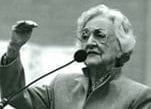
Helen Perlman was a pioneering figure in social work who enriched the field of social work with many contributions spanning several decades. She graduated in 1926 from the University of Minnesota with a B.A. in English. At that time it was difficult for Jewish graduates to obtain a job in the humanities so she found a job working as a summer caseworker for the Chicago Jewish Service Bureau. She has said that “a whole world opened up to me”, “I had no idea of the kinds of trouble people had. I found that in many cases, families faced the same kind of problems and conflicts that one encountered in the great works of literature.” She joined the faculty of the School of Social Service Administration, University of Chicago, in 1945. She later became the Distinguished Service Professor Emerita. When she turned 90 the School of Social Service announced the establishment of the Helen Harris Perlman Visiting Professorship in the School. Perlman was a sought after speaker throughout her career, even when she was a student at the New York School of Social Work, and in later years universities in the United States, Europe, Asia, and elsewhere.
She is probably best known for her work carrying forward and integrating concepts that emerged from diverging schools of psychoanalytic thought. Her most widely read work, which she began writing on not long after she joined the faculty in Chicago was Social Casework: A Problem Solving Process, which is still used as a textbook in schools of social work. Her thinking diverged markedly from the then-current popularity of long-term psychotherapy. She didn’t think that people always needed in-depth therapy. Today this concept of short-term therapy is a common form of help. After writing Social Casework she wrote more than 75 articles and seven other books including So You Want To Be A Social Worker, The Heart Of Helping People, and edited the book, Helping: Charlotte Towle On Social Casework. She also wrote fiction, poetry, and stories, including the short story “Twelfth Summer‘ which was published in the NEW YORKER magazine in the 1950s. She was active throughout her career in professional and educational organizations related to social work and was honored by the National Association of Social Work, the Association of Clinical Social Workers, and the Council of Social Work Education, and received honorary degrees from Boston University, the University of Southern Florida and her alma mater the University of Minnesota.
#11) Eulene Hawkins (1906-1999)
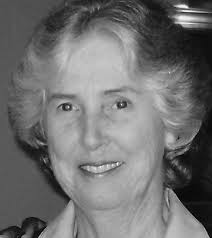
Eulene Hawkins provided sixty years of leadership to social service programs. She worked in local, state, federal, private, and public welfare settings. Her outstanding service has been recognized by awards and citations from the Department of Health, Education and Welfare now Health and Human Services. Hawkins was a very versatile social worker and able to provide leadership in a variety of settings and areas. Her period in Alabama from 1932 to 1942 with the University Child Welfare Department, the only social agency of the county offered a home for numerous federal programs. This was a beginning of a county unemployment office, the FRA, an Alabama farm administration. During this period the state and county public welfare were established in accordance with the Social Security Act. Her employment covered a broad range of jobs and activities. As mentioned earlier she worked from 1932 to 1942 with the Child Welfare Department in Alabama, she worked for Red Cross and served as the Director of Home Services in the Washington, D.C. for 19 years.
In Atlanta, Hawkins oversaw the administration of Title 707 of the Social Security Act which provided undergraduate and graduate funds to schools of social work and also stipends to people. She was particularly recognized for her work in improving minority faculty in schools and in the development of minority stipends particularly with African-American social workers. She received five different awards from the American Red Cross, the Southeastern Regional Manpower Coordinating Committee, Florida State Advisory Committee Social Work Education Planning Project, East Tennessee State University, Alabama State University, the University of Alabama School of Social Work and the Howard D. Dundee Distinguished Service Award The Alabama Legislature Resolution of Commendation established the Eu/ene Hawkins Social Work award at Tri-State University. Hawkins also received the state of Alabama Department of Pensions and Security now Human Resources Retirement Citation, the Alabama of Conference of Social Work Social Worker of the Year, NASW award, Social Worker of the Year, NASW Alabama chapter, Lifetime Achievement award from NASW, 1991, and the Lifetime Achievement award from Montgomery and Seniors of Achievement the Montgomery Area Council on Aging.
#12) Margaret Daniel (1908-1997)

Margaret Daniel’s career is synonymous with the beginnings of public welfare in the 1930s and the establishment of professional social work as a career service within the Veteran’s Administration following World War II. Daniel selected social work as her major as an undergraduate at the University of Minnesota where she received her bachelor of science degree in 1931. Until 1941, she participated in the early years of child welfare and public welfare in New York, New Mexico, and Missouri. Following completion of the graduate program at the New York School (Columbia University), and award of the master of social work degree in 1942, she served oversees as a supervisor of the social services in the Armed Service Hospitals in India, China, and Burma. At the end of World War II, her background and demonstrated leadership as a professional social worker made her a natural for pioneer work with the Veteran’s Administration, which was undergoing extensive reformation with new and exciting opportunities for professional service. Beginning in 1946 as a Social Work Consultant in the St. Louis Branch Office she served first a four state and later an eight state area. Later, Daniel moved to the Central Office as Education Chief within the Social Work Service.
During this period, the VA was regarded as a standard bearer for professional social work and Daniel was a leader in establishing educational and experience guidelines for the professional staff. Working with schools of social work, she helped to make VA field work assignments a bastion of excellent supervision and good practice. In 1964, Daniel moved from the VA to the Training Branch of the National Institute of Mental Health (NIMH) where she remained until her retirement in 1973. This was a period when NIMH was the source of significant support for students and faculty in graduate schools of social work, not only for training for mental health, but for all professional social work through the inclusion of mental health content in the generic curriculum. Margaret Daniel left her mark on both social work education and practice through her pioneer work at the VA and her continued contribution at NIMH to high standards in social work education. Throughout her career she served on countless social work boards and committees and was particularly active in the Council on Social Work Education and the National Association of Social Workers.
#13) Martha Branscombe (1910 -1997)
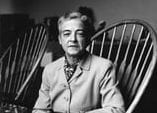
From her first employment in 1931 as an Assistant to the Speaker, Alabama House of Representatives, to her last major assignments from 1954 to 1965 as Chief of United Nations Social Services Division, Dr. Martha Branscombe has been a leader in state, national, and international social welfare activities. During the depression years, she served the Alabama Relief Administration as County Director of the Department of Social Welfare as a Regional Advisor. She moved on in 1936 to work with the Tennessee Valley Authority as Consultant on Family Relations to the Land Management Division. Having decided upon social work as her professional career, she took time out to earn both her master’s and PhD at the University of Chicago. While at Chicago, she had the good fortune of serving as an Assistant to Professor Sophonisba P. Breckinridge and Dean Edith Abbott. In 1942, the U.S. Children’s Bureau, then in the Department of Labor, took on the task of preliminary planning for post-War relief for children. Dr. Branscombe was recruited as a Consultant on International Planning. When the Children’s Bureau initiative led to planning for international relief in the Department of State, Dr. Branscombe was loaned to the Department as an assistant to the Director. This activity, in turn, resulted in the creation in 1943 of the United Nations Relief and Rehabilitation Administration.
At the first meeting to organize the agency, she served as an assistant to the U.S. delegation. She then joined UNRRA Headquarters in Washington, DC to participate in organizing and staffing the Social Welfare Section. Early in 1944, as the European Office of UNRRA was being organized in London, she was assigned to assist in establishing the Social Service Division and became temporary head of the Child Welfare Section. Following the end of World War II in Europe, Dr. Branscombe returned to Washington headquarters as Chief of Child Welfare. In 1946, she moved on to direct the European operations of the U.S. Committee for the Care of European Children. As Director of European Operations for the U.S. Committee, Dr. Branscombe was based in Frankfurt, Germany, and worked in close cooperation with U.S. and Allied Military Forces and UNRRA. As a fitting capstone to her distinguished career, Dr. Branscombe joined the United Nations Secretariat in New York City as Chief of the Social Services Division in the Department of Social Affairs. In this position from 1954 to 1965, her leadership had far-reaching results, particularly in the new nations of the Third World. After she left the United Nations, Dr. Branscombe returned to Washington to take on a series of Senior Advisory positions, first with the Head Start Program, then with the Department of State, and finally, with the Vietnam Bureau in the Agency for International Development.
#14) Alfred Neumann (1910-2002)
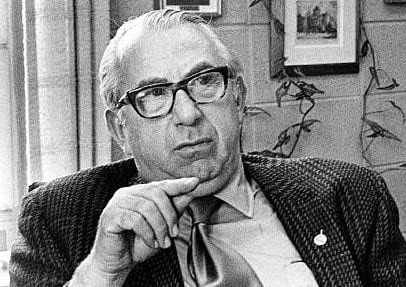
For almost 30 years Fred Neumann was executive director of the Jewish Family and Children’s Service of Colorado (1948 – 1976). His pioneering work included reorganization of the entire social service program of the agency, organization of family counseling, developments of programs in child placement and adoptions and immigration services. He organized the vocational guidance service including psychological and vocational testing and organized the utility workshop of Denver, a sheltered workshop for the rehabilitation of social and emotionally mentally handicapped Jewish and non-Jewish clients from the entire Rocky Mountain area. Throughout his work with the Denver agency and as a consultant with many other agencies throughout the country he tried to find better ways to resettle displaced persons and to help them deal with individual and family problems. Fred Neumann was born in Vienna, Austria. He received a doctorate juris prudence degree from the University of Vienna in 1934 and until 1937 worked in the criminal and civil courts in Vienna. Following Hitler’s occupation of Austria, he was a counselor in the demogration department in Vienna and was instrumental in organizing the relief giving to needy Jewish families, furnishing of emergency housing facilities, setting up of retraining programs and helping with immigration problems in the Jewish community.
Sometime after 1938, he was able to leave Vienna and eventually escape to the United States. In 40-41 he went to the school of Social Work at Columbia University and received his masters in 1941. Before going to Denver, he worked with the Jewish Social Service Association in New York City and with the Youth Bureau in Cleveland, Ohio and with Jewish Family and Children’s Services of Minneapolis, Minnesota. He took post graduate training and family and marital counseling at the University of Pennsylvania School of Social Work and at the University of Minnesota School of Social Work. He continued a small private practice after his retirement from the Denver agency. In 1976 Dr. Neumann moved to Sun City, Arizona and became involved with a variety of social agencies and was a board member of Interface Services and of the Jewish Family Service in Phoenix, Arizona. In 1982 he was the recipient of federation service cross 1st class from the Federal Republic of Germany. June 30, 1982 was by the proclamation of the governor of Colorado, the “Dr. Alfred M. Neumann Day”. Another of his pioneering activities from 1966 to 1982 was senior consultant to the Office of Economic Opportunity, Head Start and follow through programs. He trained staff of over 100 Head Start programs in administration and the efficient use of volunteers. Dr. Neumann passed away on March 3, 2002.
#15) Frances Feldman (1912-2008)
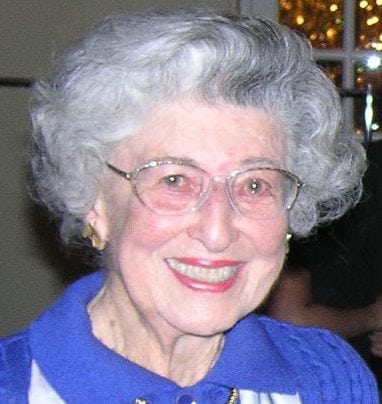
Frances Feldman, a University of Southern California professor and social work pioneer, conducted a groundbreaking study in the 1970s that showed cancer patients faced discrimination in the workplace. Her research provided the first systematic evidence that employers and co-workers often imposed harsh, even illegal conditions on cancer survivors. According to the National Association of Social Workers, several states modified fair employment legislation because of the study. Social policy and administration have been the center of Frances Feldman’s professional career, which began in 1934. After a number of years as a social worker and administrator in the public welfare and the family service fields, in 1954 she joined the faculty of the School of Social Work at the University of Southern California. For more than 50 years, Feldman examined the social and psychological meanings of work and life. She also established the first faculty and staff counseling center at USC, now a blueprint for employee assistance programs across the country. Her teaching areas were social welfare history, policy, and administration. Feldman’s research and writing center on the psychological, social, and economic meanings of money and work in American families.She has made several pioneering contributions to the profession. Her writings on the meanings of money still constitute the seminal work in this field and have received continued national and international attention. Feldman was instrumental in establishing the first industrial social work curriculum in the west, as well as a University-funded staff faculty counseling center, which has become a model for the creation of employee counseling programs in some government and industry work places in California.
With George Nickel, she established the first credit counseling services; 280 now exist throughout the nation under the auspices of the National Consumer Credit Association. With Norris Class, Feldman helped to create the still operating Delinquency Control Institute at USC, a training facility for corrections and related personnel. It draws students for its training from around the United States and the world for its programs each year. Feldman’s social work skills have been called on by groups such as the McCone Commission to examine the Watts riots of 1965. Private corporations also call upon her to examine the impact of downsizing policies and actions on employees and their families. Her work on the Alaska Rural Areas Social Services Demonstration not only was ranked by the University of Florida as one of the ten most successful demonstration projects ever funded by HEW, but also led to an invitation from the governments of Mali and Morocco for consultation about dealing with similar problems in those countries. Numerous awards and honors have been bestowed on her. She has served on a number of state and national committees and commissions, including chairing the Governor’s Advisory Committee on Mental Health. Although she officially retired in 1982, she continued to do research, lecture, and volunteer activities, to serve on several agency boards in the wider community, and to conduct invited workshops in various parts of the United States and in other countries.
#16) John Myron Rockmore (1913-2002)
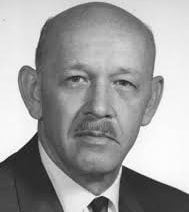
Myron Rockmore had an outstanding career in which he developed psychiatric social work practice as a component of World War II and post-World War II mental health programs. He was known nationally as a leader in psychiatric social work and a pioneer in mental health services. Rockmore received his bachelor’s degree from St. John’s University in 1936; his master’s degree in education from St. Lawrence University in 1937; and his PhD from the New York School of Social Work in 1939. He worked in the New York Department of Social Welfare from 1935 to 1940 and then in the Board of Education Bureau of Child Guidance from 1940 to 1941. With World War II he became the chief of military psychiatric social work in the U.S. Army’s first mental hygiene unit. He was decorated with the Legion of Merit for his social work efforts. After the war, he became a consultant to the Surgeon General of the U.S. Army and was influential in determining policies for the expansion of military social work programs. He also became chief psychiatric social worker with the New York Psychoanalytic Institute (1946 to 1952) were he worked closely with Dr. Marion Kenworthy, a psychiatrist noted for her contribution to social work education. During this same period, 1946-1952, he was a consultant to the Group for Advancement of Psychiatry, which developed concepts of community psychiatry and interdisciplinary teamwork.
From 1954 until 1977, he served as the first director of psychiatric social work for the Connecticut Department of Mental Hygiene. Rockmore was the first social worker to chair the program committee of the American OrthoPsychiatric Association. He also served on the executive committee of the American Association of Psychiatric Social Workers (AAPSW). As chair of the AAPSW Research Study Committee, he had oversight of an National Institute of Mental Health funded study of psychiatric social work practice. He was Chair of the NASW Council of Social Workers in Mental Health and Psychiatric Services in 1966. Rockmore helped to successfully implement social work as a necessary part of mental health treatment along with psychiatry and nursing. Rockmore was a resident of West Hartford, CT and was born in Brooklyn, N.Y. He was the husband of the late Reva Rockmore, whom he met while he was teaching at Columbia University in the late 1940s and early ’50s. Reva Rockmore was also involved in the social work field, where she served as chairwoman of the National Association of Social Workers school social work council.
#17) John A. Wallace (1915-2000)

John Wallace was an internationally known expert in the field of corrections, who began his career in corrections as a deputy probation officer in Ramsey County, Minnesota. He later became the assistant director of probation and parole for the State of Minnesota; the executive assistant of the National Probation and Parole Association (which later became the National Council on Crime and Delinquency), in New York City; and director of probation for the Supreme Bench of Baltimore City, Maryland. He was the first director of probations, Office of Probation, for the Courts of New York City, where he consolidated and reorganized probation services in the city. Mr. Wallace later served as an advisor to the Ministry of Justice and the Ministry of Social Welfare for the Government of Sri Lanka through the United Nations Development Program (UNDP). He developed training programs in both agencies to improve the use of probation and parole. After returning from Sri Lanka, Mr. Wallace joined the National Institute of Corrections (NIC) in Washington, D.C., where he served as acting director for a short period during a change of administrations. During his years at NIC, he was loaned to UNDP by the U.S. Department of Justice, and served as advisor to the Ministry of Justice, Government of Papua New Guinea.
In this capacity, he helped to develop the laws creating the probation and parole systems in PNG. During his remarkable career, John Wallace was a member of 17 state and national task forces and commissions, including: the first Advisory Board of the National Institute of Corrections, the ACA Advisory Board on Revision of Correctional Standard, the Joint Commission on Correctional Manpower and Training, the President’s Commission on Law Enforcement and Administration of Justice, and Standards and Goals of Criminal Justice. In addition, he served as a commissioned officer in the Medical Administrative Corps during World War II and was a member of the Reserve Officer Corps for 18 years following active military duty. Mr. Wallace’s honors and awards include the “Distinguished Citizen” award, which he received in 1965 from the Macalester College Alumni Association, and the “Outstanding Achievement Award,” conferred in 1968 by the Regents of the University of Minnesota. Mr. Wallace received a bachelor of arts degree from Macalester College, St. Paul, Minnesota, and a master’s degree in social work from the University of Minnesota.
#18) Howard Gustafson (1916-1966)
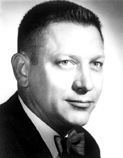
Howard Gustafson was a graduate of the University of Minnesota and the Mandel School of Applied Social Services at Case Western Reserve University. He was active as a social work leader in Cleveland as well as in Houston, Texas, where he worked with the Community Council of Houston and Harris County. He was elected president of NASW in 1964. At that time he was serving as executive director of the Community Service Council of Indianapolis, a position he had held since 1952. Prior to his election as NASW’s sixth president, he had served the Association in a leadership capacity as member-at-large on the Board of Directors (1957-1960); second vice president (1960-1962); and chair of the Committee on Chapter-National Relations (since 1963). Additionally, he held numerous committee assignments in the Central Indiana Chapter, to which he belonged. A respected authority in the field of community organization, he was a powerful advocate of social work cooperation on the “War on Poverty”. He was also among those directly responsible for the formation of – and was a participating member of – the Office of Equal Opportunity (OEO) Community Action Against Poverty in Indianapolis.
He took the occasion in his inaugural address as NASW president in 1965 to stress the antipoverty challenge to social work saying: “We expect as social workers, to give a good account of ourselves in such efforts – and to lead the way in making adaptations and innovations.” On March 25, 1965, as NASW president elect, he participated in the Freedom March in Montgomery, Alabama, and wrote an account of that experience in an article that appeared on the front page of NASW News in May 1965. He recalled: On the way back home, I tried to analyze what the civil rights struggle means to our Association…I was wondering whether social workers, and NASW in particular are Really prepared to act on social issues in their own communities and in their own Agencies…This is what I’ve been thinking about since returning home from Montgomery.” On May 28, 1966, while in Chicago attending the NASW Seminar on Social Action, he died suddenly of a heart attack. He was 50 years old. In his honor, NASW established a major award – the Howard F. Gustafson Award – and also undertook sponsorship of the Howard F. Gustafson Fund, established by the Community Service Council of Indianapolis.
#19) Ruby Pernell (1917-2001)
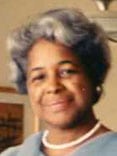
Ruby Pernell completed her graduate work at the Pittsburgh School of Social Work, possibly the same time as Dr. Gisela Konopka. Her doctorate degree was from the London School of Economics. Pernell was on the faculty of the Minnesota School of Social Work for many years, and later joined the faculty of the Case Western Reserve School of Social Work. She held the Grace Longwell Coyle Chair in group work. Pernell’s impact on group work education was significant over the years. However, her great contribution as a pioneer in the field of social work was her leadership in the field of international social work. She was Social Welfare Attache to India for the State Department under Ambassador Chester Bowles, one of only two Social Welfare Attaches in the history of our country. Mary Catherine Jennings (another pioneer) was the second Social Welfare Attache, having served in Brazil. Her interest in the field of international social work has also been with the International Council on Social Welfare as well as various consultant activities of an international nature. Pernell served as president of the Minnesota Southern Chapter of the National Association Social Workers. Pernell was hired by the University of Minnesota as a professor of social work in 1948, the same year that Edwin D. Driver was hired by the University of Massachusetts. Pernell and Driver are believed to be the first black faculty members hired by a state flagship university in the twentieth century. At the end of her career, Pernell was considered a pioneer in the field international social work.
Pernell’s work touched many communities: she was a settlement house worker at the Soho Community House in Pittsburgh; a faculty member at the University of Minnesota School of Social Work; a social welfare attaché assigned to India for the State Department; a Visiting Professor at the Universities of Denver, Washington, and Atlanta; Grace Longwell Coyle Professor and professor emerita of Social Work at the School of Applied Social Sciences at Case Western Reserve University from 1968 to 2001 (now the Mandel School of Applied Social Sciences). Pernell also served as the Acting Dean of that institution from 1973 to 1974. She was a founding member of the Association for the Advancement of Social Work with Groups and a board member and advisor to many local and national organizations, including the Peace Corps. As part of her commitment to international social work and study-abroad programs, Pernell served as a consultant for many nations, including Britain, Egypt, the Sudan, Jamaica, Germany, Canada, Sri Lanka, and India. Dr. Pernell wrote over 35 articles and monographs, contributing regularly to journals such as International Social Work, Journal of Education for Social Work, and Social Work, and authoring chapters in Fundamentals of Social Work Practice (1982).
#20) Sister Mary Paul Janchill (1920-2009)
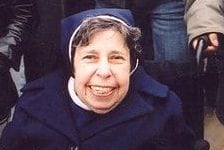
Sister Mary Paul Janchill wrote one of the three seminal articles introducing general systems theory to social work practitioners in the late 1960s. Her 1969 article, along with papers by Ann Hartman and Carel Germain, formed the basis for much of the work of the past three decades on systems approaches to social work practice. Sister Mary Paul’s primary contributions to the profession, however, were in her roles as a social work practitioner where she was a model clinician, administrator, advocate, and leader. Sister Mary Paul co-founded the Center for Family Life in Sunset Park in 1978, and also served as its co-director. The Center provides comprehensive, neighborhood-based family support, advocacy, and clinical services to a low-income community in Brooklyn, New York. Some of the outstanding characteristics of the Center are its focus on the family as the unit of attention; holistic, non-stigmatizing approach to services; integration of clinical and community services; 24/7 accessibility; frequent movement between case and cause advocacy; ongoing program development; and its developmental perspective on families and the community.
The Center has been widely heralded as an actual embodiment of the ecosystems perspective on practice, which is so frequently taught and so seldom implemented, and has been cited as an excellent model or program in many professional publications and works for the general public. Sister Janchill joined her order, called the Sisters of the Good Shepherd, in 1945. In 1953, she graduated from St. John’s University. She went on to earn a master’s degree in social work from Catholic University, in 1955, and a doctorate in social work from Columbia University in 1968. In her role as co-director of the Center, she pioneered many of its new approaches to practice, including the first neighborhood-based foster care program in New York City, a range of creative school-based service programs, and an advocacy clinic for neighborhood residents. She also served as a field instructor, supervisor, and role model for many students and workers, and is widely recognized in New York City as a constant advocate for improved policies and programs in the family and child welfare arena. Sister Mary Paul was the recipient of several awards including the White House Award by President Ronald Reagan, “Private Sector Initiative Commendation,” for Exemplary Community Service and the Eleanor Roosevelt Award from the Citizens’ Committee for Children of New York. She also served as a member of the board of directors of the Citizens’ Committee for Children and Lawyers for Children.
#21) Joan Bonner Conway (1920-2008)
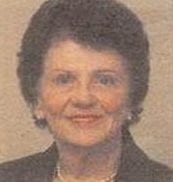
Fondly referred to as the “dean” of hospital social work directors, Joan Bonner Conway contributed pioneering efforts toward the organizing of professional support structures for the discipline and its medical social work specialty. She was a charter member of NASW and prior to that organization, served as a member of the American Association of Medical Social Workers from 1943-1965. Bonner Conway was also a charter member of the Society for Hospital Social Work Directors and served as representative of the Eastern Pennsylvania chapter for several years. She was also its first chairperson. Bonner Conway was Chair of the Medical Social Work Section of NASW, Philadelphia Chapter, from 1962-65, Chair of the Nominating Committee Medical Social Work Section, Philadelphia Chapter, from 1959-1961, First Vice Chair of the NASW Philadelphia Area Chapter from 1971-73, and a board member of the Pennsylvania state chapter from 1975-1981. She was a charter member of the American Hospital Association’s Society for Hospital Social Work Directors from 1966 until her death, serving as its Philadelphia Area Chapter Chair from 1971-73. Bonner Conway served as director of the Hospital of the University of Pennsylvania from 1971-1987. Her specialization was in the field of medical social work.
While at the University of Pennsylvania, she served as a lecturer and clinical assistant professor of social work as well as contributing to several committees. She was director of the Social Service Department of Magee Memorial Hospital Rehabilitation Center from 1958-1971 and a medical social worker at Albert Einstein Medical Center from 1957-1958. In addition, she taught history at an academy in Venezuela from 1955-57 and was a medical social worker in several Philadelphia-area hospitals in the early 1950’s. Bonner Conway began her career during World War II as a caseworker with the National Red Cross, serving in military hospitals, including Walter Reed General Hospital, from 1943-48. Bonner Conway earned her MSW from Catholic University of America in 1943 and her doctorate in social work from the University of Pennsylvania in 1976. Dr. Bonner Conway served on numerous boards, including the Philadelphia chapter of the American Heart Association, the March of Dimes, the American Red Cross of Southeastern Pennsylvania, Community Health Affiliates, and Catholic Charities of the Archdiocese of Philadelphia. A native of Baltimore, Dr. Conway graduated from St. Leonard’s Academy in West Philadelphia. In 1968, she married Thomas Agnew Conway, a widower with three children. When he died six months later, she stayed close with his children.
#22) Elaine Rothenberg (1921-1994)
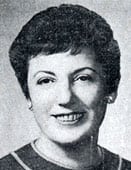
Elaine Rothenberg made important contributions to Social Work Education in this country. Born in New York City, graduated from Queens College of that city with the highest honors, she went on to Smith College School of Social Work where she earned her MSW in 1943. She grounded her experience in case work both in public welfare in Florida and later in the Family Service Society in Richmond. She went on to the Memorial Guidance Clinic in Richmond where she was both caseworker and supervisor. Her career in academic education began in the School of Social Work, Richmond Professional Institute where she was Professor of Social Work as well as Director of Field Work and Admissions. During this period Smith College recruited her for their summer sessions teaching case work. Later she joined their Seminar faculty. In the late 1960’s Richmond Professional Institute joined the Virginia Commonwealth University. Mrs. Rothenberg became associate Dean of that School of Social Work and in 1972 was named Dean, but her influence extended beyond the School of Social Work. After her retirement as Dean, she was named Professor and Director for Academic Affairs and finally Vice- president of the University and received U.C.V.’s Presidential Medallion, an award for service to the University.
Her successor in the Deanship said of her: “During the years of her deanship she built VCV’s School of Social Work into one of national renown.” Mrs. Rothenberg’s ability and competence was recognized and put to use by local, national and international professional organizations. She was on the Board of Directors of NASW and later on the Executive Committee of that organization at the national level and she also took an active role in committees and taskforces at the State and local level. The Council of Social Work Education used her on their Accreditation Commission and in their House of Delegated. She was a member of the NIMH review committee for their grants to Schools as well as on the review committee for the Office of Human Development Service under the Dept of Human Service. She was frequently used as Consultant on curriculum development in schools of social work. She was in demand as a speaker and as an institute and workshop leader. Although Mrs. Rothenberg spent her last 45 years in Richmond which was her home, she will be missed not only in that locality, but by all the schools and organizations in which she played such an active and significant role.
#23) Alvin Schorr (1921-2016)
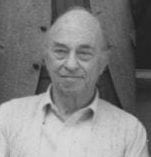
Alvin Schorr’s career was identified with public social policy, particularly with the issues surrounding income maintenance. Born in New York City in 1921, Schorr graduated from the City College of New York with a BSS and from Washington University in St. Louis with an MSW. After college he was a social worker and executive in various public assistance, child welfare, and family counseling agencies. This phase of his career culminated with the executive directorship of the Family Service of Northern Virginia. In 1958, Schorr received an appointment as a Family Life Specialist in the Social Security Administration with the responsibility to adapt social security programs to changing family needs. He dealt with issues such as AFDC, housing, and poverty. In 1963, Schorr began a two-year stint as the Social Security Administration’s Acting Chief of Long Range Research, where he headed analyses of poverty in the U.S. and the relationship of family and income development. In 1965, Schorr moved from Social Security to the Office of Economic Opportunity, again in the area of research and planning the allocation of OEO and other government funds in the war against poverty. In 1967, he moved to the Department of Health, Education, and Welfare as the Deputy Assistant Secretary for Individual and Family Services.
Schorr moved from the government to the academic sector at the end of the Lyndon Johnson administration. In November, 1968, he went to Brandeis University as professor of social policy and director of the Center for Studies of Income Maintenance Policy (later he initiated a similar center at New York University), a project that provided consultation to model cities programs. In 1970, Schorr became dean of the New York University School of Social Work and in 1973 he became the General Director of the New York Community Service Society, a position he held until 1977. After two years (1977-79) as visiting professor at the Catholic University of America, Schorr became the Leonard Mayo Professor of Family and Child Welfare at Case Western Reserve University in Cleveland. He received numerous awards, among them a Distinguished Service Award (1966) and the Distinguished Alumnus Citation (1970) from Washington University’s George Warren Brown School of Social Work, the Michael Schwerner award for civil rights leadership (1972), and an Honorary Doctor of Humane Letters from Adelphi University (1975). He was a Fulbright Senior Research Scholar in England in 1962-63.
#24) Whitney M. Young, Jr. (1921-1971)
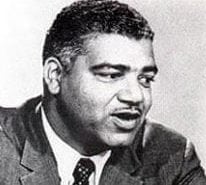
Whitney Young was an American civil rights leader. He spent most of his career working to end employment discrimination in the United States and turning the National Urban League from a relatively passive civil rights organization into one that aggressively worked for equitable access to socioeconomic opportunity for the historically disenfranchised. Young was the son of a Kentucky educator. He graduated from Kentucky State College at 18 and became a high school teacher and coach. From 1942 to 1944, while in the U.S. Army, he studied engineering at the Massachusetts Institute of Technology. After his discharge, he received an MSW from the University of Minnesota (1947) and began to work with the Urban League in Minnesota. He became executive secretary of the Urban League in Omaha, Nebraska in 1950. In that position, he helped get black workers into jobs previously reserved for whites. Under his leadership, the chapter tripled its number of paying members. During this time, he also taught social work at the University of Nebraska and Creighton University, and became dean of the Atlanta University School of Social Work (1954). In 1961, Young was appointed executive director of the National Urban League. Within four years he expanded the organization from 38 employees to 1,600 employees; and from an annual budget of $325,000 to one of $6,100,000. Young served as President of the Urban League until his death in 1971.
The Urban League had traditionally been a cautious and moderate organization with many white members. During Young’s ten-year tenure at the League, he brought the organization to the forefront of the American Civil Rights Movement. He both greatly expanded its mission and kept the support of influential white business and political leaders. A noted civil rights leader and statesman, he worked to eradicate discrimination against blacks and poor people. He served on numerous national boards and advisory committees and received many honorary degrees and awards —including the Medal of Freedom (1969), presented by President Lyndon Johnson—for his outstanding civil rights accomplishments. Despite his reluctance to enter politics himself, Young was an important advisor to Presidents Kennedy, Johnson, and Nixon. In 1968, representatives of President-elect Richard Nixon tried to interest Young in a Cabinet post, but Young refused, believing that he could accomplish more through the Urban League. Young served as President of the National Association of Social Workers (NASW), from 1969 to 1971. Mr. Young spent his tenure as President of NASW ensuring that the profession kept pace with the troubling social and human challenges it was facing. Young’s work was instrumental in breaking down the barriers of segregation and inequality that held back African Americans.
#25) Barbara K. Shore (1921-2013)

Dr. Barbara K. Shore was a graduate of the Carnegie Institute of Technology (now Carnegie Mellon University) and the University of Pittsburgh. She held a Bachelor’s degree, a Master’s degree, and a Doctoral degree in Social Work. She was named a Distinguished Service Professor by the University in 1992 and Professor Emerita in 1996. Dr. Shore was Director of the Doctoral Program in the School of Social Work for almost 20 years. She was National President of the Group to Advance Doctoral Education (GADE), the national organization of all doctoral programs in social work in the United States and Canada. In addition, she was a three-time President of the University of Pittsburgh Senate and has served on a number of Senate committees. She chaired the Tenure and Academic Freedom Committee of the University Senate and served as the Chair of the University Senate’s Anti-Discrimination – Committee. She also served on the Chancellor’s Task Force on Cultural Diversity, on a special committee to select speakers and recipients of honorary degrees from the University, on the Advisory Committee on University Policy for Publications and on the University Task Force on sexual harassment.
Dr. Shore wrote and presented more than 50 papers and book chapters and also performed a number of consultancies. Dr. Shore headed the Task Force appointed by Allegheny County Commissioners to study Children and Youth Services (CYS) in 1987. This effort included an in-depth study of the services offered, the staffing, the effect of interventions and the relationship with the Juvenile Court and the private and public sector. The County Commissioners appointed Dr. Shore to co-chair an implementation committee that followed the progress in implementing the recommendations and reported regularly to the Commissioners as well as to the public. Dr. Shore was Vice-chair of the CYS Advisory Board, Co-chair of the Prevention Sub-Committee and Chaired an Ad Hoc Committee to make recommendations to improve the relationships between CYS and Juvenile Court. In September, 1994, she was asked to chair a committee to examine key issues in Children and Youth Services and to make recommendations about the agency’s policy and practices. In addition to serving on this committee, Dr. Shore served on the Mental Health and Mental Retardation Board for Allegheny County. She also co-chaired the Healthy Jewish Community Study that made recommendations for improving the mental and physical health of persons in the Jewish community.
#26) William “Bill” C. Pugh (1921-1989)
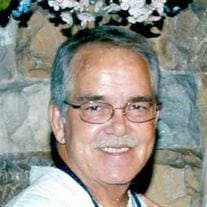
In a social work career spanning over 35 years, Bill Pugh developed and implemented social service programs for thousands of Alabama’s citizens. Many of his innovations brought national acclaim to the Alabama social work community: the development of the state’s first legal services program for the poor in cooperation with the Alabama Law School, the development of the first model day care program in the state through the University of Alabama School of Home Economics, and the establishment of the state’s first statewide advocacy program for individuals with developmental disabilities. During the period between 1969 and 1972, Pugh served as the first Deputy Commissioner of the Alabama Department of Pensions and Security (now Human Resources). His creative approach to the use of federal social service funding under Titles IV-A and XX of the Social Security Act resulted in significant improvement in the quality of life for poor adults and children, the mentally ill, and the developmentally disabled in Alabama. The programs developed under his leadership during those important times were viewed as national models by many professionals in other states and the nation. Following his long career with the state’s Department of Pensions and Security, Pugh assumed the position of Special Assistant for Academic Development with the University of Alabama.
His creative social work skills resulted in the establishment of the nation’s first management training program for welfare administrators. Participants in this training program are now providing administrative leadership in various social service programs in over 40 states. Pugh’s career took another turn when he retired from the University of Alabama and began work as Director of AGAPE of Central Alabama, a children’s agency devoted to services to unmarried mothers, adoption placement, marriage counseling, and other family services. Pugh’s legacy to the social work community in Alabama goes far beyond the program developments and management improvements he spearheaded. His most significant legacy is perhaps the identification and discovery of potential social work talent in the scores of young professionals he recruited, trained, and encouraged during his career. Those social workers cause his name and spirit to continue as they work to improve the quality of life for others. Pugh received an MSW degree from Florida State University and a BS from the University of Alabama. He was nominated for NASW’s National Social Worker of the Year in 1983. The social work profession and the state of Alabama lost a leader and pioneer with the death of Bill Pugh.
#27) Jane Bierdeman-Fike (1922-2012)
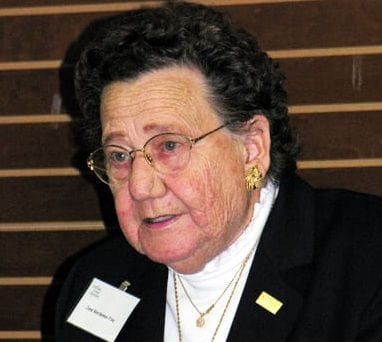
Jane Bierdeman-Fike worked as a social worker in the area of mental health for fifty years. Her first job was as a case worker for the St. Louis Welfare Office where she was continuously employed since that time as a social worker in many different places. Beginning in 1962, she was the Director of Psychiatric Social Work at Fulton State Hospital. As director, she advocated for the vulnerable and often unheard residents at Fulton State. She was a role model and mentor for other social workers working with this population and was a great teacher to students all over the state and the United States as a practicum supervisor. Jane believed that those who are oppressed with mental illness need to have a voice and she taught this and lived this belief as a lecturer at William Woods University, University of Missouri School of Social Work in Columbia, George Warren Brown School of Social Work at Washington University and the School of Social Service at Saint Louis University. Prior to being asked to take on the responsibility as Director of Psychiatric Social Work, Jane was a casework supervisor and a psychiatric social worker at St. Louis State Hospital.
She worked with people with mental health needs from 1955 until her retirement. She didn’t just work with them, she lived for them. Every activity she chooses to participate in she did because she believed it would better their lot in life. She was a role model and social workers across Missouri feel blessed to have worked with her. She was honest, sensitive and caring, and on top of all of that, she knew her practice and stayed current with practice trends. Jane was the rare practitioner who believed in writing up and presenting her practice experiences and interventions. She published several articles and also received several grants. Jane not only served Fulton State Hospital, she served her community. She served on the NASW National Board of Directors and was a catalyst in getting the NASW- Missouri Chapter started. This involved gaining the collaboration of several different social work groups within the state. She served on the NASW Missouri Chapter Executive Committee as Vice-President, elect in 1975, and as President, elected in 1977. She graduated Magna Cum Laude from Maryville College in 1944 with a Bachelor of Arts degree. In 1949 she received her MSW from the School of Social Service, St. Louis University.
#28) Antonia Pantoja (1922 – 2012)
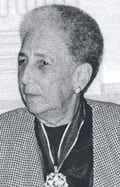
Antonia Pantoja was regarded by many in the Puerto Rico Latino community as one of the most important leaders in the United States. She was a charismatic and visionary leader. In 1997 she received the Presidential Medal of Freedom, the nation’s highest civilian honor, from President Clinton during a ceremony at the White House. He praised her work as founder of ASPIRA, an organization that promotes cultural pride, education, leadership training and community service for Latino youth. Pantoja also helped found the National Puerto Rico Forum and Boricua College. “Peace and respect – these are the values that define the work of Antonia Pantoja” Clinton said in presenting the award. “Her contributions to her people and, therefore, our country are unsurpassed,” he added, calling Panjota “the most respected and loved member of the Puerto Rican community.” “The impact of her work and her contributions to our community has had reverberations so profound and so broad that for generations to come, she will continue to be an inspiration for young Puerto Ricans,” declared then NASW Executive Director Josephine Nieves at a reception following the presentation. In 1973 she received a Ph.D. from Union Graduate School. She was on the faculty of the School of Social Work, San Diego State University and later founded the Graduate School of Community Development in San Diego, an institution that served communities and neighborhoods throughout the nation.
She was involved in a variety of community and professional organizations, all working toward the goal of building stronger Puerto Rican and minority communities, including the Ford Foundation, the National Urban Coalition, the Museo del Barrio, the National Association of Social Workers, the Council on Social Work Education, and several other groups and organizations. One of her many friends and colleague wrote that “she never had a conversation with her when she was not addressing, or worrying about, a social concern or an in justice…her work was constant, her mind never rested, and everything she did was steeped in her values and ethics. As a result, her friends and admirers were in both high places, and in the Barrios, they were politicians, fundraisers, policy gurus, and in the arts. They lived in the contiguous United States, in Puerto Rico, and many parts of the world. Her friends and admirers were of all ages and all ethnic groups.” She was the author of Memoir of a Visionary as well as many other publications and speeches.
#29) Lillian C. Milanof (1922-2015)
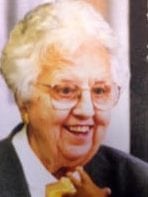
Lillian Milanof was legendary among social work practitioners in Louisville. Since her career in social work and education began in 1944, clients, students, co-workers, and innumerable others have remarked about her strength, compassion and dedicated advocacy. Renowned for her more than two decades as an educator in the Raymond A. Kent School of Social Work at the University of Louisville, Milanof was also a nationally recognized child welfare expert whose encyclopedic recollection of child caring practices improved contemporary views about child welfare. For 60 years, her professional activities and affiliations were matched by a record of consultation and civic service that, alone, might have been a career. Throughout the 1940s, 1950s, and early 1960s, she held various positions, in public welfare organizations in Ohio and New York. In 1964, she moved to Kentucky and joined the social work faculty at the University of Louisville, where during the next 23 years she taught and advised students and served in administrative positions, including four years as director of admissions. Her sabbatical pursuits during these years included work with the Kentucky Youth Research Center in Frankfort, Kentucky, and the Department of Health, Education, and Welfare in Washington, D.C. She was named Professor Emerita upon her retirement from the University of Louisville in 1986.
Milanof served as a consultant to the Board of Social Work Examiners of Kentucky, the Kentuckiana Children’s Center, the Dessie Scott Children’s Home, United Cerebral Palsy of the Bluegrass, and the Kentucky Youth Research Center. In the 1960s and 1970s, and again in the 1990s, she served on advisory bodies for the administrations of no less than four Kentucky governors. Throughout the 1980s and 1990s, she served on a variety of boards and planning committees for the Roman Catholic Diocese of Louisville and Western Kentucky. In 2002 Milanof was appointed by Mayor David Armstrong to the Louisville and Jefferson County Human Relations Commission. Her community service included work with the Aging Resource Center, the Kentucky Association for Older Persons, the Kentucky Cabinet for Human Resources, and Bridgehaven in Louisville. Milanof researched, reported and written frequently on topics including foster care, social work program assessment and social work education. Her service continued substantially into her post-retirement years. She continued to work with the Kentucky Cabinet for Families and Children, the Kentuckiana Regional Planning and Development Agency, Transit Authority of River City, Metro United Way, the Kentucky Long Term Care Ombudsman Program, and the Home of the Innocents in Louisville.
#30) Helen Reinherz (1923-2017)
A Charter Member of the NASW, Helen was an active member of the Massachusetts Chapter, and served as the Chairperson of the Research Council. For twelve years she was a member of the Continuing Education Commission of the NASW. Helen received the Award for Greatest Contribution to Social Work Practice from the Massachusetts’s chapter NASW in 1982. She received numerous Awards from the Simmons Alumni Association for writing in mental health and problems of children and youth. In 1996, she received their Lifetime Achievement Award. In 1998, she was the recipient of the first research writing award of the Institute for the Advancement of Social Work Research and the Society for Social Work and Research for the paper “Traumas and Posttraumatic Stress Disorder in a Community Population of Older Adolescents” in the Journal of the American Academy of Child and Adolescent Psychiatry depicting the result of a 20 year study funded by NIMH. After graduating from Simmons College School of Social Work, Helen Reinherz worked as a case worker at the Family Service Bureau of Newton, MA. Her next position was in Child Psychiatry at the Massachusetts General Hospital and as a supervisor of students from Simmons College School of Social Work. Upon leaving that position, she began her career as a researcher with an NIMH grant supervising Harvard students who were volunteering at Metropolitan State Hospital.
Since 1965, she was a member of the Faculty at Simmons College School of Social where she has been a Professor in the Research Department. From 1993 — 1996 she was Director of the Doctoral Program. Her affiliation with Simmons continues as she continues with her research projects. Her studies have focused on preschool children and adolescents. Currently, she is the Principal Investigator, “Simmons Longitudinal Study: Adaptation and Development Across the Lifespan”. In 2005, the Society for Social Work Research, gave her the Distinguished Achievement Award. Also in 2005, she received the NASW Presidential Award for Excellence in Social Work Research. This award “recognized her for her extensive body of research in mental health”. It further stated: “Since 1976, Reinherz has followed a group of community residents from kindergarten to adulthood, examining both risk and protective factors for depression, substance abuse, eating disorders and resilience. This Simmons Longitudinal Study, funded by the NIMH, has resulted in more than 60 articles and chapters in books. Most recently, Reinherz and her colleagues published their findings of child and adolescent risks for depression, resilience and impairments in adulthood from adolescent depression and substance disorders”.
#31) Edward F. Krise (1924-2003)
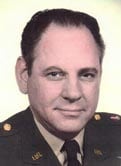
Colonel Edward F. Krise has been a trailblazer, problem-solver and leader in his military career, and in civilian life. He seeks knowledge appropriate to the solution of the problem or crisis at hand, and looks for ways to support improved interpersonal relationships within difficult situations. After leaving military service, Ed Krise went to Brown University where he received a Bachelor of Arts Degree. Then he enrolled in the School of Social Service Administration at the University of Chicago where he received an M.A. in 1950. While at SSA, Ed Krise and his wife lived at Hull House and participated in community activities there. His first social work position was as Executive Secretary, North Dakota Youth Council and representative to the Mid-Century White House Conference on Children and Youth. With the advent of the Korean Conflict, Krise returned to active duty with a commission in the Army Medical Services Corps as a psychiatric social worker. He was one of the first social work officers in the newly established Military Social Work program. For fifteen years, he helped to develop social work roles and programs in various military mental health settings. He also participated in the evaluation of behavioral science programs in Vietnam for the Walter Reed Army Institute of Research. Along with his military assignments, Krise made contracts with mental health and social agencies in the communities where he was located and did part time work in selected agencies and supervised social work students.
He took advantage of many continued education opportunities and in 1958 returned to the University of Chicago where he earned a Ph.D. in Social Service Administration. Beginning in 1965, Lt. Colonel Krise was given a series of important assignments in which he used his interpersonal skills and his knowledge and experience in clinical practice, administration, research and human relations. His duties took him away from clinical practice and research and gave him responsibilities for work on significant issues which were important to all servicemen and their families. Initially, he was assigned to develop the Army Community Service Program for the continental United States. These duties included the development of the Army Equal Opportunity program. In 1969, Colonel Krise was transferred to the Army Surgeon General’s Office as Chief of the Office of Patient Care Administration which include staff supervision of CHAMPUS and Chair of the Interdepartmental Committee on Medical Care. In 1970, Col. Krise chaired a committee made up of representatives of each of the Armed Services to evaluate a special report on “Education in Race Relations” The evaluation committee became an implementation committee and in 1971, he was appointed the first Commandant of the Department of Defense Race Relations Institute.
#32) Bernice Catherine Harper (1925- )
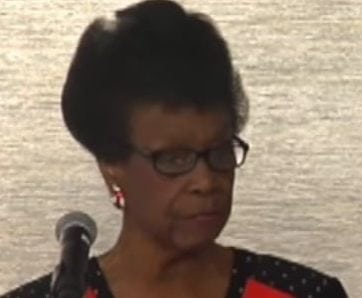
Dr. Bernice Harper was instrumental in developing long term program policies which highlight continuity-of-care, including community and institutional care, and stresses the importance of psychosocial components. She served as the Medical Care Advisor to the Health Care Financing Administration in Washington, DC. Her career in health care and health care policy formulation led her to practice in varied settings, while personifying the values and ethical standards of the social work profession in even the most difficult and highly charged political environments. Harper earned her MSW from the University of Southern California in 1948, her MSc.PH from Harvard University in 1959 and her LLD degree from Faith Grant College, Birmingham, AL. Her commitment to the long term care of those in need has served to demonstrate the best of the best for the profession and for those in need. Her insight and commitment to professionals, especially social workers, who are under both personal and professional stress as they work with patients in the final phases of their lives, combined with her perspective, academic, and practice skills with their families, motivated her to produce a definitive publication on death and the special needs for professionals to cope with their related stress.
The book, Death: The Coping Mechanism of the Health Professional, was in advance of the interest now placed on this area. Harper identified and labeled specific stages of coping with death that are important to understand, especially for professionals living through the process with clients. Harper’s work at the City of Hope in California as Chief Social Worker and her practice with leukemia patients and families sustained her interest in the important needs of those with chronic and long term illness. She is nationally recognized for her work and is sought after for training workshops and conferences. Bernice Harper has consistently been referred to as the professional’s professional. Harper has been able to represent social work values and bring them into policy statements. She has not compromised the long term health care needs of those in the country. She has also worked with multiple government organizations around minority services and activities for professional as well as other educational needs. Harper serves on the board of directors for the NASW Foundation and has been active and held leadership positions at NASW and the International Conference on Social Welfare. In 2017, Harper was inducted into the California Social Work Hall of Distinction.
#33) Sabina Shalom (1925- )
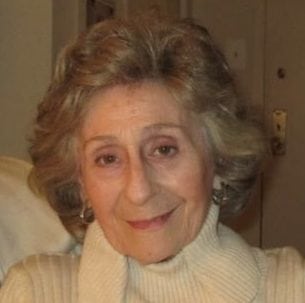
Born and educated in Sheffield England, Sabina Shalom was a volunteer with a British Relief Organization working with concentration camp survivors in Europe after World War II. Elie Wiesel, who later became a Nobel Laureate, was a youngster in one of the homes to which Sabina was assigned by Oeuvre des Secours Aux Enfants, France. Her work also encompassed the illegal immigration to Israel of scores of stateless adults and young persons. Later, under the chairmanship of Lady Lionel de Rothschild, Sabina directed “The Children’s Marrainage Scheme,” an organization which brought orphaned children to England and place them in foster homes. Her programs with the BBC London’s overseas service enabled these survivors to broadcast messages abroad hoping to trace living relatives in Europe. The family moved to Canada, the U.S. and then South America for five years in Equatorial Barranquilla, Columbia and later, seven years in Bogota. While in Bogota, Sabina together with medical professionals set up a free welfare clinic for unwed mothers, and under the auspices of the American Women’s Associations, she organized an escort service for the blind and Meals on Wheels for the sick and needy.
Sabina often served as Cultural Attache´ to the Canadian Embassy. With fluency in French and Spanish, she was requested to translate for and accompany Princess Anne when Her Royal Highness visited Columbia and was asked by the Press about Canada’s efforts to improve the life of indigent Columbians. Upon returning to Florida, Sabina and her husband were curators at the International Polish Government’s Holocaust Exhibition and worked together in resettlement programs for Russian immigrants. She read for the Miami Lighthouse for the Blind, became a hospice volunteer and as the Florida spokesperson for the incarcerated Jonathan Pollard traveled extensively to plead against the injustice of the harsh sentence. Sabina was instrumental in advocating for non-smoker’s rights. She pressed charges against a smoker who refused to extinguish his cigarette in an elevator, an action that obliged her to become a witness for the State of Florida. The NASW Florida Chapter awarded her with a Lifetime Achievement Award in recognition of her 50 years of dedicated service. After 30 years of marriage, she asked her husband for a leave of absence with pay. She “put a pack on her back and traveled 50,000 miles alone around the world on $1,500. Out of this experience, she wrote “A Marriage Sabbatical.” Her book was originally published in 1984 and reprinted in 2001.
#34) Jack Rothman (1927- )
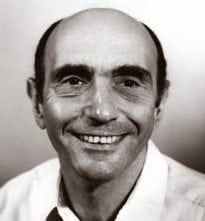
Jack Rothman has made groundbreaking contributions to the profession in the area of practice and also in research. In addition, he has forcefully forged innovative connections between knowledge development and knowledge utilization for over three decades. This work has been distinctive, distinguished, and impressively path setting. His scholarly work in community organization practice provided the foundation for a sound academic footing for that field. The literature up to that point had been highly descriptive and anecdotal. He formulated the leading conceptualization of community intervention, “Three Models of Community Organization Practice,” which is recognized nationally and internationally as the foremost theoretical construct in that field. His co-edited textbook, “Strategies of Community Intervention,” which has that piece as its cornerstone article, is in its 7th edition and is the longest standing text in community organization–and possibly in social work generally (originally published in 1974). Rothman’s work was a critical factor in having the professional come to accept social action and political advocacy as legitimate practice functions in the field. In the early 1960s, Rothman joined Professor Meyer Schwartz at the University of Pittsburgh to implement the first contemporary two-year concentration in community organization.
He continued with notable curriculum development work in community organization at the University of Michigan. With his colleagues, he designed the most comprehensive community organization curriculum, built the largest student body in the country, and inspired other similar specializations across the nation. His work was prescient, emerging prior to the profession’s embrace of evidence-based practice and providing a guiding framework for the empirical practice movement that has influenced academic research in social work for several decades. Rothman’s early work at the University of Michigan involved an extensive research utilization effort geared to developing an empirical knowledge base for community intervention. Rothman’s awards include those from: the Evaluation Research Society; ACOSA; and the NASW Foundation, to which can be added two senior Fulbright Research fellowships— in Great Britain and Israel (these fellowship are seldom awarded twice); a Harry Lurie Fellowship; a Distinguished Alumni Award from Ohio State University; and consulting invitations from the National Science Foundation; the Center for Disease Control; the National Task Force on Group Life in America; the Veterans Administration; and numerous other international, national, state and local bodies. He is an American social worker who has gained widespread international recognition and respect for advances in both the research realm and in the field of community intervention, recognition that extends well beyond the field of social work.
#35) James M. Karls (1927-2008)
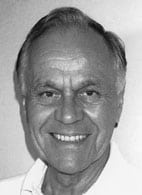
After serving in World War II, Dr. Karls began his outstanding 59 years of social work in public mental health services at the local and state level. He started the first mental health clinics in California’s Central Valley. He was the associate director and then director of the Mental Health Training Center in Southern California, which offered seminars to anyone in the mental health field in the southern half of the state. He followed that as director of Mental Health Research for California. He was a part-time faculty member at UCSB, UCLA, University of California, Berkeley, San Francisco State and USC. Perhaps Dr. Karls’ greatest contribution to the public appreciation of social work is his development of the “person in the environment” (PIE) assessment system that distinguishes social work from the other mental health professions. Working with Dr. Karin Wandrei, Dr. Karls used the concept underlying social work practice of person-in-environment to develop a system for social workers to record the results of their assessment that addresses the whole person. It helps the practitioner determine recommended courses of action, and to clearly follow the progress of the work. It is used as a teaching tool not only in the US but internationally.
PIE provides an alternative to the medical model that has traditionally dominated mental health practice, and encourages social work leadership in social rehabilitation, community resources, and advocacy models. Dr. Karls traveled extensively around the world teaching international social workers about the PIE assessment system. He served as the NASW California Chapter President and the President of the Santa Barbara Mental Health Association. Dr. Karls received numerous social work awards including NASW’s Chapter and Unit Lifetime Achievement awards and the lifetime national recognition award from the National Council for Community Behavioral Healthcare. He founded the California Hall of Distinction that honors past and present great social workers in California, and he was inducted in 2008. Wherever social work systems theory is discussed, person in environment or PIE frequently comes up. When Dr. Karls’ name comes up, social workers throughout the country and around the world nod their heads in acknowledgement to this great social worker who has significantly advanced professional social work in theory and practice.
#36) Dr. Hobart A. Burch (1932-2012)
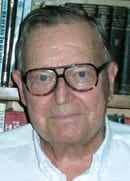
Dr. Hobart Burch embodied a role model for future social workers in his career. He was a successful practitioner in increasingly responsible leadership positions at the neighborhood and city levels in New York City, Boston and Buffalo. He demonstrated creative and influential leadership in faith-based social work at the National Council of Churches. The mission there was on planning and coordination to weave a safety net of social services well before the concept became popular. He helped shape the Federal Government’s policy and program response to poverty, particularly in youth employment, as a part of the War on Poverty. He had an active and important role in interpreting and promoting professional social work in an environment that was hostile to the profession. He did this, in part, by quickly preparing well-researched policy and program position papers that were used by his superiors in the U.S. Department of Labor. Thus, he helped give real meaning to the efforts to build a “Great Society.” In this role, he helped change the views of many decision makers about the worth of professional social work and some of their clients. He chose to leave Federal service when his convictions were no longer compatible with Federal direction.
He then became the Executive Director of the National Social Welfare Assembly. In this position, he used his knowledge of the Federal system to help guide the efforts of many national non-profit organizations. Dr. Burch completed the final years of a productive career as a professor of social work and as Dean of the School of Social Work in the state of Nebraska. His teaching and educational administration career was distinguished by his commitment to the whole of the profession. For him, the micro/macro split was seen as a window of convenience rather than two different kinds of social work. During this period, his policy research and writing led him to international social work. In this connection, he established a consulting relationship that shared social work policy learning internationally. Dr. Burch received an A.B. in 1953 from Princeton University with a double major in English literature and American civilization program; an MDiv from Union Theological Seminary in 1956; a MSW in 1958 from the Columbia University School of Social Work; and a Ph.D. in Social Policy and Planning from Brandeis University in 1958. He authored several books on social policy.
#37) Nazneen S. Mayadas (1934- 2015)
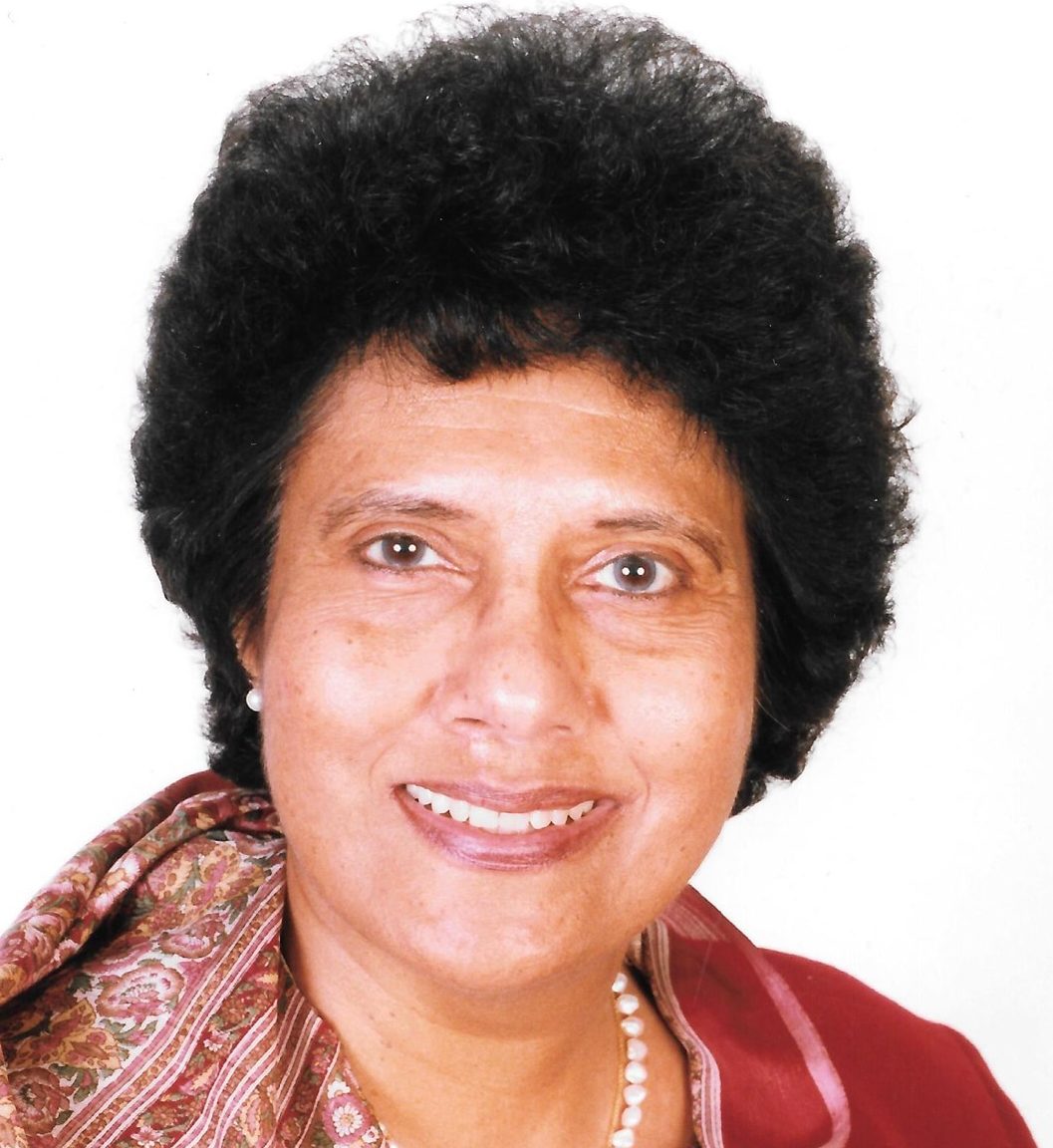
At the time of her retirement in 2006, Dr. Mayadas had practiced social work for 50 years in India, Canada, The United States, and in her capacity as Chief of Social Services in the Office of the United Nations’ High Commissioner for Refugees, Geneva, Switzerland. Born in Lucknow, India, Nazneen Sada Mayadas held the degrees of Bachelor of Arts from Lucknow University, India; Master of Arts from Allahabad University, India; Master of Social Work from Case Western Reserve University, and a doctorate in Social Work from Washington University, St Louis. Dr. Mayadas served on the faculties of The University of St Louis and The University of Texas at Arlington, where she established herself as a prolific researcher, scholar and award winning teacher. She also served as visiting professor on the faculties of Smith College, George Warren Brown School of Social Work, Washington University, St Louis; and The South Glamorgan Institute, University of Wales, Cardiff. Dr. Mayadas practiced in many countries and continents of the world working for better conditions for refugees. Her services to the profession of social work included national leadership positions such as Chair of the National Association of Social Workers’ Book Committee, Chair of the National Association of Social Workers’ Publications Committee, service on the Council on Social Work Education International Commission and Global Commission, and on the Executive Board of the Association for the Advancement of Social Work with Groups.
A productive scholar, she published six books, 25 book chapters, and more than 50 journal articles. She was co-editor of Social Development Issues. In 2010 Dr. Mayadas was one of the 15 women whose contributions were celebrated in the book by Professor Alice Lieberman, ‘Women in Social Work who changed the World ‘ published by Lyceum Press. The years between the beginning of her social work career in community work in Calcutta, India, her homeland, and her retirement in 2006 as Professor Emerita at the University of Texas at Arlington, were packed with contributions to the profession. Some of her innovative and groundbreaking achievements and her contributions to the improvement of practice are summarized as follows: Chief of Social Services for The United Nations High Commissioner for Refugees in Geneva in the mid 1980s; a leader in the field of international social work; awarded the ‘Partners in Advancing Social Work Education’ award by the International Commission of the CSWE in 2006; practitioner and teacher of social work across national boundaries over a period of five decades; researcher on effectiveness in the teaching and practice of counseling skills and the use of video in clinical practice and training.
#38) James R. Kelly (1934-2002)

Jim Kelly’s pioneering work in the development and administration of the Veterans Administration Extended Care Programs has shaped the modalities of long-term care now available to veterans across the country. As Chief of Community Care Programs (1975-1988) and Director of Extended Care Service (1988-1997) in the VA Central Office, he fostered the growth of new home and community-based services and led the effort to coordinate and integrate individual long-term care programs into a unified continuum of extended care programs. Jim achieved many “firsts” in his pioneering efforts in the VA: implementing legislation and setting standards allowing VA to reimburse community nursing homes; arranging for adoption of Medicare/Medicaid standards by VA; initiating the first federal standards for residential care; implementing Community Residential Care, Adult Day Health Care and Homemaker/Home Health Aide services within the VA system; expanding these programs to include the frail elderly and the mentally ill as well as the physically disabled; establishing a comprehensive policy for VA long-term care programs. With each policy and program development, he held interdisciplinary educational seminars for VA staff and other professional caregivers.
Jim Kelly graduated from Georgetown University in 1956. He served in the Army for two years, and then went to the School of Social Service Administration at the University of Chicago where he received his MASSA in 1961. His social work career started at the VA Hospital in Perry Point, Maryland, where he was on the staff for 10 years. He was Chief of Social Work Service at the VA Medical Center in Togus, Maine for three years, before being reassigned as one of the original staff members in the Geriatrics and Extended Care Strategic Healthcare Group when it was formed as an office in 1975. The National Council honored Mr. Kelly’s work in Adult Day Health Care on Aging by awarding him the John Heinz Award in 1993. Upon his retirement from the VA, in 1997, Mr. Kelly received a Distinguished Career Award from the Secretary of the Department. The Citation concluded: “Finally, James Kelly epitomizes the public servant at his very best. A career federal employee, he has consistently demonstrated intelligence, hard work, determination, and attention to detail to become and remain a successful leader in long-term care. He has served as a valued mentor to many professionals in long-term care, he has instilled in others the importance of the mission of service to veterans and the expectation of excellence in care, delivery, program management and policy analysis.”
#39) Barbara Mikulski (1936- )
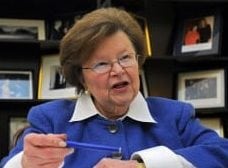
Senator Mikulski was the first Democratic woman to serve in both the U.S. House of Representatives and U.S. Senate, the first woman to win a statewide election in Maryland, and the longest serving woman in the history of Congress. Earning a bachelor’s degree in sociology from Mount Saint Agnes College and her Master of Social Work from the University of Maryland, she spent years in the field — organizing communities, explaining Medicare to senior citizens and helping at-risk children. She began her career as a social worker after graduating from the University of Maryland with an MSW. She worked with at-risk children in Baltimore. Senator Mikulski began her political career by organizing neighbors to stop construction of a 16-lane highway through the historic Fells Point area of Baltimore. This highway not only threatened Fells Point, but also would have cut through the first black home ownership neighborhood in the city and would have prevented the successful development of the Harbor Area. Barbara Mikulski became known as the street fighter who beat the highway. This led to a seat on the Baltimore City Council which then led to the United States House of Representatives and now to the United States Senate. Senator Mikulski was elected to the Senate in 1986. She was the first Democratic woman to hold a Senate seat not previously held by her husband; the first Democratic woman to serve in both houses of Congress; and the first woman to win a statewide election in Maryland. Her pioneering efforts and her advocacy on behalf of women candidates has helped elect five new Democratic women to the United States Senate, and has made her the unofficial “Dean of the Senate Women.”
While blocking the freeway gained her local affection in 1968, speaking at Catholic University in 1970 set the stage and tone for her future political career – one that has been driven by passion for social justice and for serving her community that she developed as a social worker. Summarizing her career, Mikulski told the National Association of Social Workers, “Even though I have been a United States senator for more than two decades, I still think of myself as a social worker. I listen to the people and when there are problems, I try to find ways to help. … My experience as a social worker taught me valuable lessons that I still draw on today.” Senator Mikulski is recognized as a national leader on the issue of women’s health care-as one of the originators of the National Service concept-as a champion for the rights of working people-and as an aggressive advocate for jobs for Maryland. In a speech that still resonates today, Mikulski said: “America isn’t a melting pot. It’s a sizzling cauldron. … The ethnic American also feels unappreciated for the contribution he makes to society. He resents the way the working class is looked down upon. … The public and private institutions have made him frustrated by their lack of response to his needs. At present he feels powerless in his daily dealings with and efforts to change them. Unfortunately, because of old prejudices and new fears, anger is generated against other minority groups rather than those who have power. What is needed is an alliance of white and black, white collar, blue collar and no collar based on mutual need, interdependence and respect, an alliance to develop the strategy for new kinds of community organization and political participation.”
#40) Phyllis N. Black (1936- )
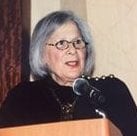
Image Source
Dr. Black has been a pioneer in the fields of group work, ethics, and research. Her early days as a social worker in Harlem and Baltimore modeled the power of group work. Black’s work with the Council on Social Work Education Commission’s on Curriculum and Educational Innovation led to further growth and collaborative efforts in the field. Black is recognized as a leader in the area of social work values and ethics, having authored two books on the topic. Additionally, she designed and implemented the first required course in social work ethics in the country. Her presentations and publications have addressed practice, research, and education in the areas of hospice, rural populations, and genetics. Black has chaired CSWE’s Commission on Social Work Practice and the Ad Hoc Centennial Committee. She was also a member of the Ad Hoc Task Force to Develop Strategies to Increase the Number of Underrepresented Faculty and Underrepresented Students in Social Work Education. Her most well-known contribution to the field may have been her leadership in the development of CSWE’s 2008 Educational Policy and Accreditation Standards.
As Chair of the CSWE Commission on Curriculum and Educational Innovation, she oversaw the most significant shift in social work education policy since its inception, moving social work curricula from content-based to competency-based. She was also one of the first advocates of student presenters at NASW conferences. Black is currently Full Professor and Director of the Lehigh Valley Program at Marywood University. She has also taught at Chestnut Hill College in Pennsylvania and the Catholic University of American in Washington, DC. Her affiliations include the Hastings Center for Biomedical Ethics, the Association for the Advancement of Social Group Work, the CSWE, and the Society for Social Work and Research. She served on the editorial board of the journal Social Thought and the Journal of Education for Social Work. Black has served as a consultant on ethics to the NASW; the Wissahickon Hospice at the University of Pennsylvania; John Hartford Foundation Geriatric Social Work Faculty Scholars Program; and the CSWE Commission on Accreditation. Black received her PhD in 1978 from the Catholic University of America in Washington, DC and her MSW in 1960 from McGill University in Montreal, Canada.
#41) Richard Boettcher (1936- )
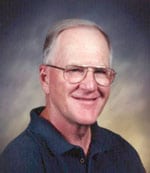
Dr. Boettcher has been a social worker and NASW member for more than 50 years and has provided leadership and enrichment to the profession throughout his career. Dr. Boettcher has served social work in many leadership roles. He has served as dean in social work education and as an officer of four different NASW chapters, including president of two. In addition to these formal roles, he has been active in promoting progressive social policies in several states, including Iowa, Michigan, Missouri and Ohio. He also has been a program evaluator for both social agencies and educational programs throughout the country. Professor Boettcher has been an active scholar throughout his professional career, contributing research reports as well as monographs and journal articles. His writing and presentations have covered many areas of social work practice, but his work has given particular attention to social work ethics, ethical challenges, and ethical conflicts. Although, now, professor emeritus at Ohio State University, he continues to be in demand as a speaker and trainer in conferences and social service agency workshops. Dr. Boettcher received his B.A. from Augustana College in 1957 graduating Magna cum Laude; his MSW from Washington University, St. Louis, Missouri, with Research Honors; and his Ph.D. in social work with a minor in sociology from the University of Minnesota in 1970. On several occasions, his colleagues have seen fit to honor Dr. Boettcher’s leadership and contributions to the profession.
He was named Social Worker of the Year by the Mid-Missouri Program Unit in 1983 for his leadership as Director of the School and as the founding president of the Missouri Social Work Educational Consortium. The Central Ohio Unit of NASW acknowledged his leadership in Ohio with a Lifetime Achievement Award in 1994. In 1993 the general assembly of Ohio adopted a “Special Resolution of Recognition” for his leadership and service to the state. Dr. Boettcher has served on a number of professional and community boards including the Accreditation Commission of the Council on Social Work Education, The Board of Directors of Ohio National Association of Social Workers, The Epilepsy Foundation of Central Ohio Board, Youth Advocate Services Board, The Columbus International Program Board, Southside Learning and Development Center Board, and The Board of Directors of the Association for Community Organization and Social Administration, among others. Upon returning to the faculty in 1993, Dr. Boettcher resumed teaching in the area of social administration. He designed and developed two popular new courses for the College namely, “Resource Acquisition for Human Service Organizations,” and “Ethical Dilemmas in Social Work Practice.”
#42) Mimi Abramovitz (1941- )
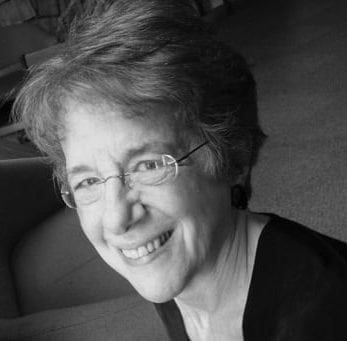
A professor at the Silberman School of Social Work at Hunter College (CUNY) in New York, Dr. Mimi Abramovitz received the 2013 Humanitarian and Leadership Award for contributions in the field of social work, women’s rights, and human rights, from the Association for International Conferences. She co-founded the Welfare Rights Initiative at Hunter College, an organization working to allow welfare recipients to attend college. Abramovitz’s early work in women and welfare galvanized a generation of young social workers, focusing on low income women and women of color. Guided by a deep commitment to social justice and social change, her work has influenced public policy through innovative research, activism and writing. She effectively integrates her beliefs in social justice into her work as a social work scholar and educator. Abramovitz is known nationally and internationally as an educator, scholar, social critic, and activist who brought a gender/race/class analysis into the study of the U.S. welfare state. Since the early 1980s, she has taught a variety of social work classes at the Louis V and Samuel J Silberman School of Social Work at Hunter College, City University of New York (CUNY) in New York. She has written groundbreaking books on gendered interpretation of the welfare state for social work and filled a large gap in social work literature by looking at how the revenue side of the welfare state affected women.
Her publications have become a part of course syllabi in sociology, history and women studies. For 30 years her many presentations have influenced social workers, social scientists and policy makers. She has served on two Council on Social Work Education (CSWE) Commissions and now works with the Special Commission on Macro Practice to expand macro content and enrollment in social work schools. Abramovitz co-founded the Welfare Rights initiative at Hunter College. She also co-founded the Undoing Racism Internship Project, in which students conduct anti-racism training for social workers throughout New York City. She has been active in professional organizations as well, including two terms on the Diversity Commission of CSWE, a member of the Research Commission of CSWE, a Faculty Advisory Board member of the Murphy Institute for Worker Education and Labor Studies, an active member of the Board of the National Economic and Social Rights Initiative, a member of the United Way of New York City Income Support Task Force, and editorial board member of Affilia, Social Services Review, Journal of Social Work Education, Journal of Poverty Issues, Journal of Progressive Human Services, Journal of Applied Social Science, Journal of Sociology and Social Welfare, and Journal of Women and Aging. She has been a member of NASW since 1967 and has served on numerous task forces and commissions.
#43) C.W. King (1941 – )
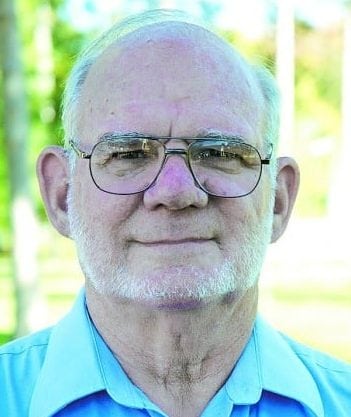
As the Director of the Chippewa County Human Services Agency for 27 years, King was responsible for shaping and integrating a variety of local social service programs into an efficient, responsive and client-oriented system. At a time when “institutionalization” was the main focus of treatment, he advocated and led the agency to provide community-based programs for clients. As a result, the Chippewa County Human Services Agency pioneered many innovative programs including a Community Options Program, Community Support Program and a positive development program focused on creating opportunities for clients to become self-supporting through employment. In addition, his advocacy and leadership led to the addition of community-based programs including a sheltered workshop and work programs for the handicapped in Chippewa County. In 1972, C.W. King moved to Chippewa Falls, Wisconsin where he began his long career in professional social work and volunteerism, primarily in the areas of human services, veteran’s affairs, and community-based organizations. As a Vietnam veteran, C.W. King was motivated to become an advocate for programs to benefit veterans suffering from Post Traumatic Stress Disorder (PTSD). He served on the Post Traumatic Treatment Advisory Council for the Veteran’s Administration Hospital in Tomah, WI. It was his work in the 1970s and 1980s with Vietnam veterans experiencing post-traumatic stress syndrome that gained him recognition as the 1985 Wisconsin Social Worker of the Year.
King helped organize the Wisconsin chapter of NASW and then served a term as Chapter President and as a member of the Board of Directors. On the national level, C.W. King served two terms on the NASW Board of Directors and served as a member of the National Finance Committee. King was nominated and elected Treasurer of NASW and later appointed to serve on the NASW Insurance Trust, where he taught classes in the area of risk management. C.W. King’s leadership and social work values were also exemplified through his many activities as a citizen volunteer focused on making Chippewa Falls a better place in which to live and work. King became a founding director of the Chippewa Falls YMCA and served two years on the Board of Directors, including one term as President. He also provided leadership in the development and construction of the YMCA’s physical structure. King was a member of the local Optimist Club for thirty-six years. He served two terms as President and participated in their annual fund raising activities to support the many local and national youth programs sponsored by the Optimist Club. King also contributed by serving as the President of the Chippewa Falls Police and Fire Commission and City Council, as well as being a member of the VFW, American Legion and the Chippewa Valley Airport Commission.
#44) Dr. Anita Harbert (1942- )
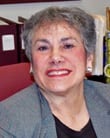
Dr. Anita Harbert is professor emeritus and former Director of the School of Social Work, the University Center on Aging, and the Center for Alcohol and Drug Studies at San Diego State University. The University Center on Aging has been a leader in developing new knowledge, stimulating professional interest, and influencing national and international policy in the area of minority aging. In 1985, Harbert established the Center for Alcohol and Drug Studies and Services to address alcohol and other drug-related problems at the university and in the larger community. The Center specializes in research and evaluation design with an emphasis on socio-behavioral research and applied evaluation, and is an umbrella organization for several alcohol and drug related research initiatives, including the SDSU Driving Under the Influence Program which provides education and counseling services. Harbert was co-founder and President of the Board of Directors of the California Social Work Education Center. When she was the Acting Dean of the School of Social Work at West Virginia University, Harbert had the vision to start an annual professional development conference to train social service practitioners in the field of aging and founded the Summer Institute on Aging in 1977. Building on the Institute on Aging, Harbert gathered an interdisciplinary team to start the Gerontology Center at West Virginia University, now known as the Center on Aging.
She was the Executive Director of the SDSU School of Social Work’s Academy for Professional Excellence, which provides in-service training, technical assistance and research for the eight southern counties in California. The Academy trains approximately 3000 child protective service workers per year in Southern California. Harbert was the Project Director of an Archstone Foundation-funded program to develop standardized curriculum on elder abuse for adult protective services workers in California. With the San Diego County Department of Mental Health Service, she directed a contract to provide training for mental services providers on the Psychosocial Rehabilitation and Recovery Models of services for chronically and persistently mentally ill adults. Throughout her career, Harbert has been the successful recipient of millions of dollars in grants and contracts from national, state and local funding agencies supporting social work education and training for the public social services. From rural West Virginia, Harbert spent years as an educator involved deeply in her community and abroad in the areas of elder care, child protective services training and advocacy, and substance abuse. She received her PhD from the Florence Heller School for Advanced Studies in Social Welfare, Brandeis University, a Master’s of Social Work degree from West Virginia University, and a bachelor’s degree in Psychology from Fairmont State College.
#45) Carmen O. Hendricks (1947-2016)
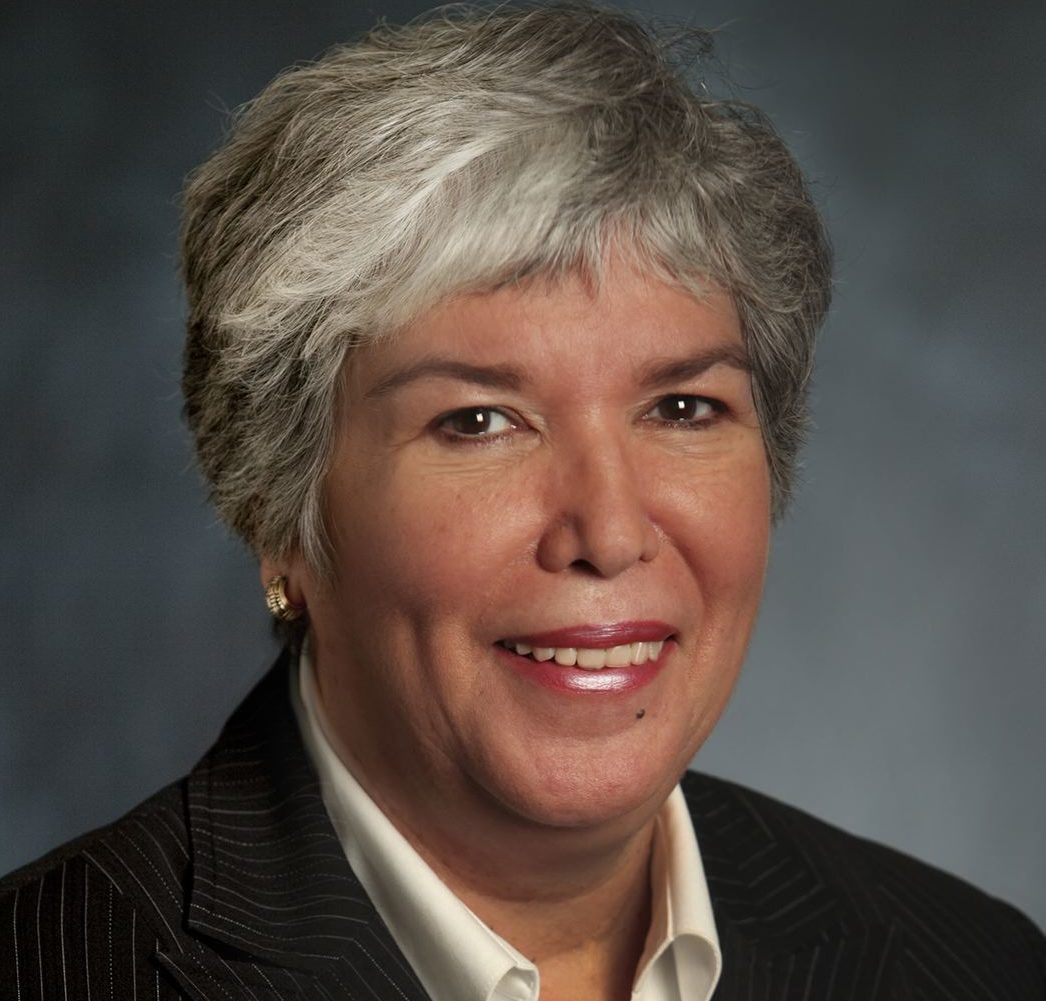
Dr. Carmen Ortiz Hendricks made significant contributions to the practice of social work in the roles of educator, administrator, and multi-cultural scholar. She is nationally and internationally recognized for the advancement of culturally competent practice with such diverse groups as Alzheimer patients, immigrants, traumatized children, and substance abusers. The settings for this practice include hospitals, schools, and child welfare and family agencies. Her field of practice was social work education and most particularly culturally competent social work practice and education. Dr. Ortiz Hendricks chaired the sub-committee of NASW’s national committee on racial and ethnic diversity that developed the association’s standards for culturally competent social work practice. These standards were later endorsed by the Council on Social Work Education (CSWE). She also served as a Commissioner on CSWE’s Commission on Accreditation. Among her most celebrated published works are the two editions of Learning to Teach, Teaching to Learn: A Guide for Social Work Education. Dr. Ortiz Hendricks authored and co-authored articles, monographs, and manuals that address culturally competent practice. Dr. Ortiz Hendricks worked primarily in social work departments of universities in New York City.
After 25 years at Hunter College School of Social Work, she became Associate Dean and Professor at Yeshiva University, Wurzweiler School of Social Work, also in New York City. In 2007, as part of a Fulbright Scholarship to Israel, she consulted with Israeli social work educators, and taught several classes at Hebrew University and Ben Gurion University. As a member of the Cuban Research Project and Collaborative with the University of Havana, Dr. Ortiz Hendricks also contributed to the practice and education of social workers in Cuba. In addition to her leadership in the area of cultural competency, she championed the cause of recruiting and advancing persons of color to and in the field of social work. Of particular concern to Dr. Ortiz Hendricks was Latinos’ increasing representation in the United States population, not matched by their entry in the social work profession. She wrote articles, and developed and led forums and roundtables on the need to recruit more Latino social workers. Dr. Ortiz Hendricks promoted cultural competency and diversity not only in her public roles but also in her classroom and through interactions with individual students. In the classroom, she modeled the empowerment of students as subjects, based on the teachings of Friere. Through her methods, students became open to new knowledge and ideas and to challenging the prevailing stereotypes and ideologies.
#46) Frederic “Rick” Reamer (1948- )
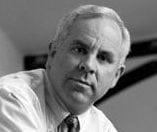
Dr. Frederic Reamer has dedicated his career to reforming the ethics, practice, and education of the social work field through his work as a researcher, an author, and a professor. His extensive experience in ethics research has helped NASW and the social work profession as a whole over the years. Reamer chaired the task force wrote the current Code of Ethics implemented by NASW. Currently, he is the chair of the NASW Technology Standards Task Force and continues to serve on the Code of Ethics Revisions Task Force. Reamer is a professor in the graduate program at the Rhode Island College School of Social Work, where he has taught since 1983. Over the years, his research has focused on a variety of human service issues, ranging from mental health and criminal justice to public welfare and professional ethics. Reamer has been a featured essayist on NPR’s Morning Edition, a commentator on NPR’s All Things Considered, and a guest on a variety of radio broadcasts on stations across the country. Starting in 2007, Reamer began as the host and producer of This I Believe – Rhode Island on NPR and Rhode Island Public Radio. He was featured as a commentator in the documentaries “America’s Serial Killers: Portraits of Evil” and “Rampage: Killing without Reason”. Reamer has appeared as an expert on the PBS series This Emotional Life.
He has distinguishing himself as an expert in the ethical use of technology within social work, and gave the keynote presentation “Managing Social Media and Electronic Communication in Social Work Practice: Ethical and Risk-management Issues” at the 2012 Association of Social Word Boards’ Education Conference, which introduced social work regulators to the ethical, practice and regulatory challenges posed by the quick rise of technology. Reamer has previously worked as the Director of the National Juvenile Justice Assessment Center at the US Department of Justice in the Office of Juvenile Justice and Delinquency Prevention from 1979 to 1981, as a Senior Policy Advisor to the Governor of Rhode Island from 1987 to 1990, and as a Commissioner of the Rhode Island Housing and Mortgage Finance Corporation from 1987 to 1995. He served on the Rhode Island Parole Board from 1992 to 2016. Reamer was the Editor in Chief of the Journal of Social Work Education from 1990 to 1994, Associate Editor of the NASW Encyclopedia of Social Work (20th Edition) and is currently an Associate Editor of the Encyclopedia of Social Work Online. He has lectured around the world on professional ethics, professional malpractice, and liability, including presenting at the 2014 NASW National Conference.
#47) Barbara W. Shank (1949- )
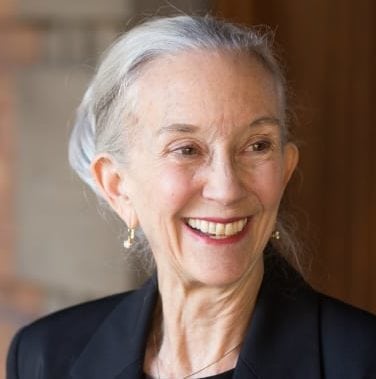
Dr. Barbara Wenstrom Shank emerged as an early pioneer in developing the principles of BSW generalist practice, defining the nature of the BSW curriculum, and emphasizing the person in environment construct underpinning social work practice. She is an advocate for accreditation standards on all levels of social work education. As an educational leader, Dr. Shank has constantly explored innovations that will provide access to professional social work education, including outreach programs in underserved rural areas and an innovative online doctoral program focused on teaching which has attracted students from many states. Dr. Shank has made significant contributions to social work not only in her leadership as Dean of the School of Social Work at Saint Catherine University/University of Saint Thomas but through her committee leadership in a wide range of social work organizations including NASW, the Council on Social Work Education, the International Association of Schools of Social Work, and the International Consortium of Social Development. Dr. Shank has continued to nurture the relationship between her university and the social work community, recognizing the importance of strong links with practitioners and agencies to the educational endeavor; a recognition exemplified by her commitment to NASW as a member and leader. Dr. Shank received her MSW from University of Minnesota in 1973 and her PhD from same in 1993.
She began her career as a family court counselor and community corrections worker in St. Paul and eventually became chair and dean of the Social Work Department at the University of St. Thomas and the College of St Catherine in St. Paul. She has been a committee leader in NASW, CSWE, the International Association of Schools of Social Work, and the International Consortium of Social Development. Dr. Shank is the major institutional supporter of the annual NASW-Minnesota conference. She is well recognized as a skilled administrator, educational innovator, and social work advocate and has made multiple professional presentations and received prestigious awards for her work. As an educational leader, Dr. Shank has explored innovations that will provide access to professional social work education, including pioneering efforts in defining and implementing generalist social work education and practice at the baccalaureate level. Dr. Shank works closely with her faculty to develop and hone their skills in teaching and research and created a series of professional development institutes as a venue supporting faculty research interests and publications. The institutes provide low-cost access to professional development seminars in a variety of fields of study. She inspires by her own actions and her wide world view that recognizes social work’s role in advocating for human rights and social development on the national and international stage.
#48) Mark S. Umbreit (1949- )
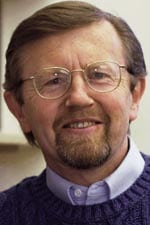
Mark Umbreit is an internationally recognized practitioner and scholar with more than 40 years of experience as a mediator, peacemaker, trainer, teacher, and researcher. He has written 10 books and more than 200 other publications in the fields of restorative justice, mediation, spirituality, forgiveness, and peacemaking. His research has contributed significantly to restorative justice policy development in the United States and other countries. Mark Umbreit received his BA major in Sociology and minored in Psychology from Valparaiso University in 1971, an M.P.A.(Masters in Public Administration) from Indiana University Northwest in 1978, and a Ph.D. in Social Work from the University School of Social Work with an emphasis in criminal and conflict resolution in 1988. In 2006 he received an Honorary Ph.D. from Valparaiso University. Dr. Umbreit’s first employment was in Indiana where was the Director/Founder of the Porter County Peace and Human Relations Center, project of the American Friends Service Committee. After being there two years he became President/Founder of PACT (Prisoner and Community Together) Institute and the PACT Institute of Justice in Valparaiso, Indiana.
Umbreit was there for 13 years when he came to Minnesota where he worked for the Minnesota Citizens Council on Crime and Justice as the Vice President for Research and Programs. After three years he worked on his social work degree and served as Research Associate for the Center for Youth Development and Research. During these years he worked closely with Dr. Gisa Konopka. In the recent past, he worked as a Senior International Consultant with the United Nations Development Program and the Ministry of Justice in Turkey to support their legislative efforts to implement victim offender mediation throughout the country. In recent months he has presented his research and provided training workshops in several cities of both Taiwan and Japan. Dr. Umbreit and his colleagues at the Center for Restorative Justice & Peacemaking, at the request of the mayor’s office in St. Paul, MN, conducted an audit of the police civilian internal affairs commission, including recommendations for major structural change to respond to concerns of local communities of color over aggressive policing, all of which were eventually accepted by the St. Paul City Council. At the request of the Nebraska Administrative Office of the Courts, they have been engaged in a five year contract to implement statewide restorative justice policies and practices in Nebraska.
#49) Norma Gray “Cindy” Jones (1951-2017)
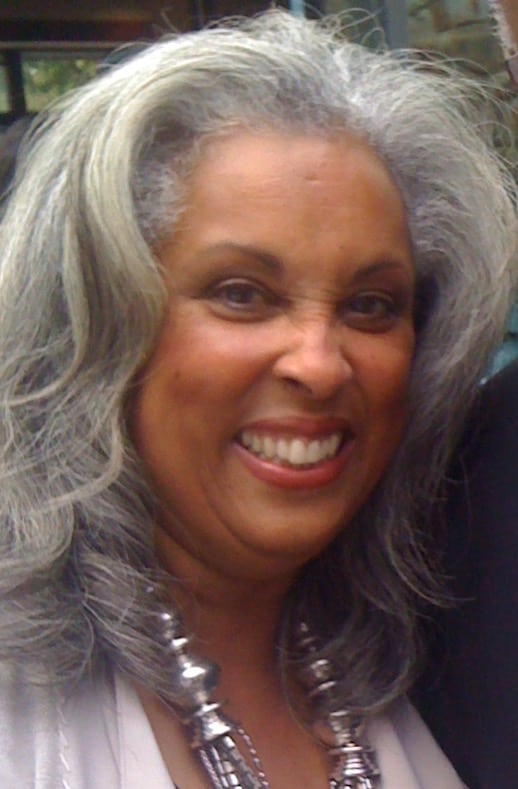
Norma Gray Jones was the US Navy’s first African American female social work officer. She served for 21 years as a Navy Commander where her work altered Navy social practices and policies. Her efforts included establishing new programs for entry level Navy social workers and implementing Family Advocacy treatment programs worldwide. She held several program management positions to include, Deputy Directory Fleet and Family Support Programs and the Director of Research for the Fleet and Family Support Programs in Millington, TN. She established new billets for Navy social workers in Diego Garcia, and Bahrain. Jones served as Director of Behavioral Health Services at the Naval Hospital, Guantanamo Bay, Cuba, focusing primarily on the “Children Soldiers” population and assisting political prisoners and refugees. Her last position on active duty was, Director of Social Work Department at the Naval Medical Center in Portsmouth, VA. Jones began her military career in San Diego, CA and was then transferred to Adak, Alaska as part of a two-person mental health team, working with military families and family violence issues. The WIC program she established there was used until the base closing in 1996. Jones served as Regional Family Advocacy Representative in London, England, served five major naval bases, and established a position for a naval psychiatrist in the UK, which was a first. She also served as a consultant and trainer to the US Embassies in London and Paris on matters related to family violence.
In addition, Jones served individual clients in London. When she returned to the U.S. in 1992, Jones was instrumental in conducting research on treatment modalities to combat family violence while stationed at San Diego Naval Base. As a result of this work, she was invited to earn her PhD. Jones co-facilitated CSWE’s Veterans Social Work Education Task Force which led to the development of the CSWE’s Military Social Work Practice Standards. While in Norfolk she served on the YWCA’s Board of Directors. During this period she served as Associate Professor and Director of the PhD Program at Norfolk State University. She also worked with the female athletes to promote educational development and interpersonal skills. Additionally, she was recognized as the 2005 NASW Social Work Pioneer and the 1993 US Navy Social Worker of the Year. Upon retirement, she joined the faculty of Norfolk State University as associate professor and director of the Ethelyn R. Strong School of Social Work Doctoral (Ph.D.) Program. In 2016, she retired from her last teaching position as clinical associate social work professor with the Army Medical Graduate Education Department at Fort Sam Houston, Texas.
#50) Thomas C. Wells (1957- )
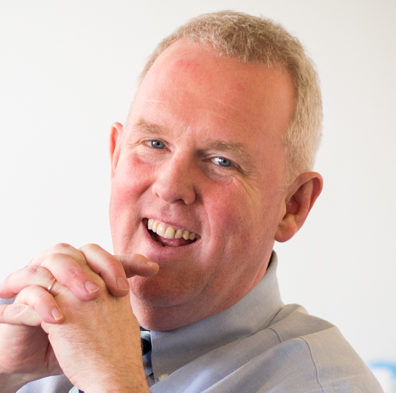
Wells began his Washington, D.C. career in 1985 as a social worker in the District’s Child Protective Services agency. In 1991, he took the helm of the DC Consortium for Child Welfare, an organization of 20 nonprofit agencies that serve the city’s children and families, where he helped to create neighborhood-based family service collaboratives to coordinate the delivery of city and nonprofit resources to underserved District of Columbia residents. Wells led the 1989 class action lawsuit LaShawn v. Barry to address the City’s failure to protect children in its care. Wells was the architect of a groundbreaking program to match the foster families with children affected by HIV/AIDS. He led the drive to create the DC Family Court. He partnered with leaders in the U.S. Congress in writing the legislation that defined the function and operation of the new court, resulting in 300 percent increase in the number of foster children adopted into permanent homes each year. Wells has also made major contributions to the city as Ward 6 Representative on the City Council. During his time as Council member he helped promote unprecedented growth in public school enrollment, the city’s largest drop in violent crime, economic revitalization, and business expansion in the fastest-growing communities in the nation.
Wells garnered broad support to make the District of Columbia livable and walkable for all residents. Known for his neighborhood-focused development, Wells championed efforts to ensure availability of public transit, including the construction of new streetcar lines and the expansion of the DC Circulator. As chair of the DC Council Committee on Transportation and Environment, he worked to double the city’s Capital Bikeshare Program. Wells crafted The Anacostia River Cleanup and Protection Act of 2009, to implement $0.05 fee on disposable bags. This landmark legislation prompted thousands of District residents to curb the use of plastic bags and instead opt for reusable green alternatives. Seventy-five percent of DC residents reported a decrease in their use of disposable bags once the bill took effect on January 1, 2010. The legislation also established a fund to restore the District of Columbia water bodies, including the Anacostia River, installed trash traps and provided environmental education for students. A passionate innovator and student of cutting edge solutions, Tommy earned his law degree from the Columbus School of Law at Catholic University in 1991 and a master’s degree in social work from the University of Minnesota in 1983. He and his wife, Barbara, a writer and arts enthusiast, are residents of Ward 6 in the District.

